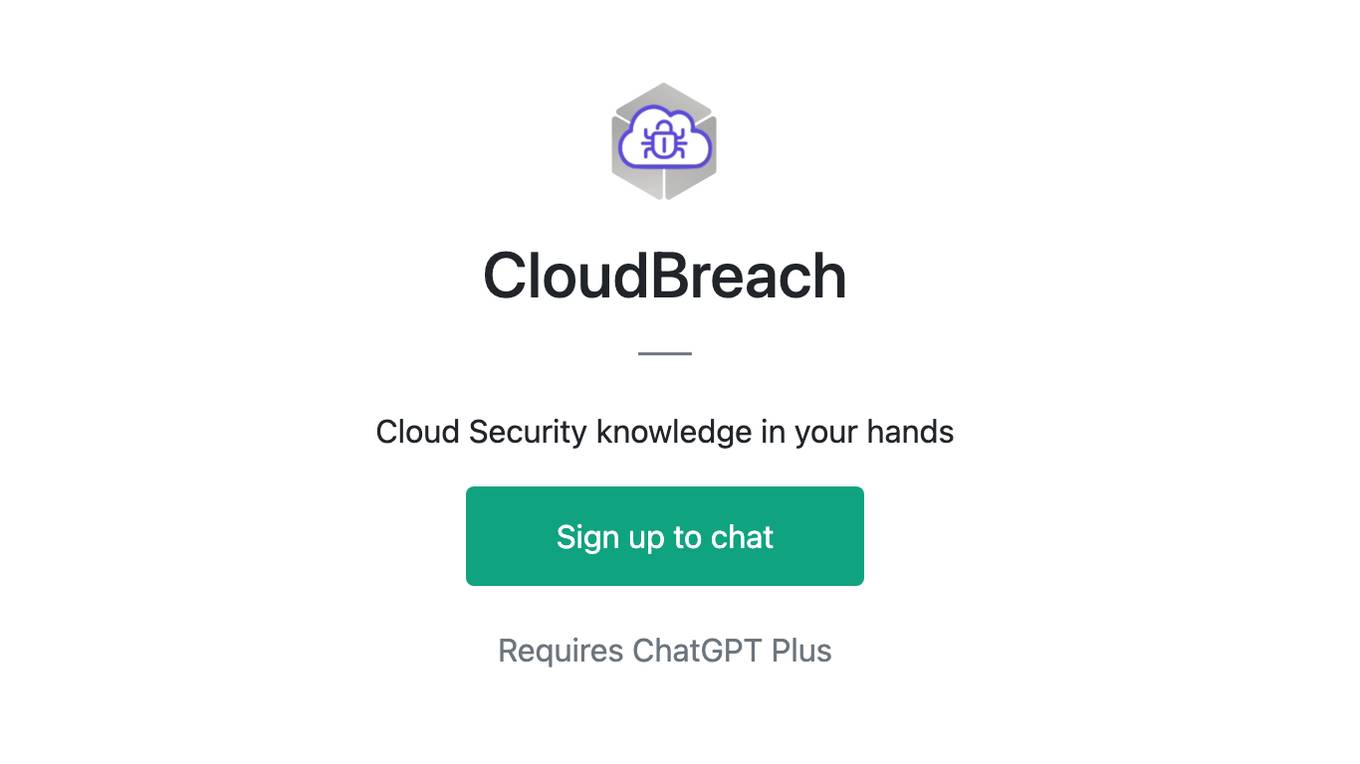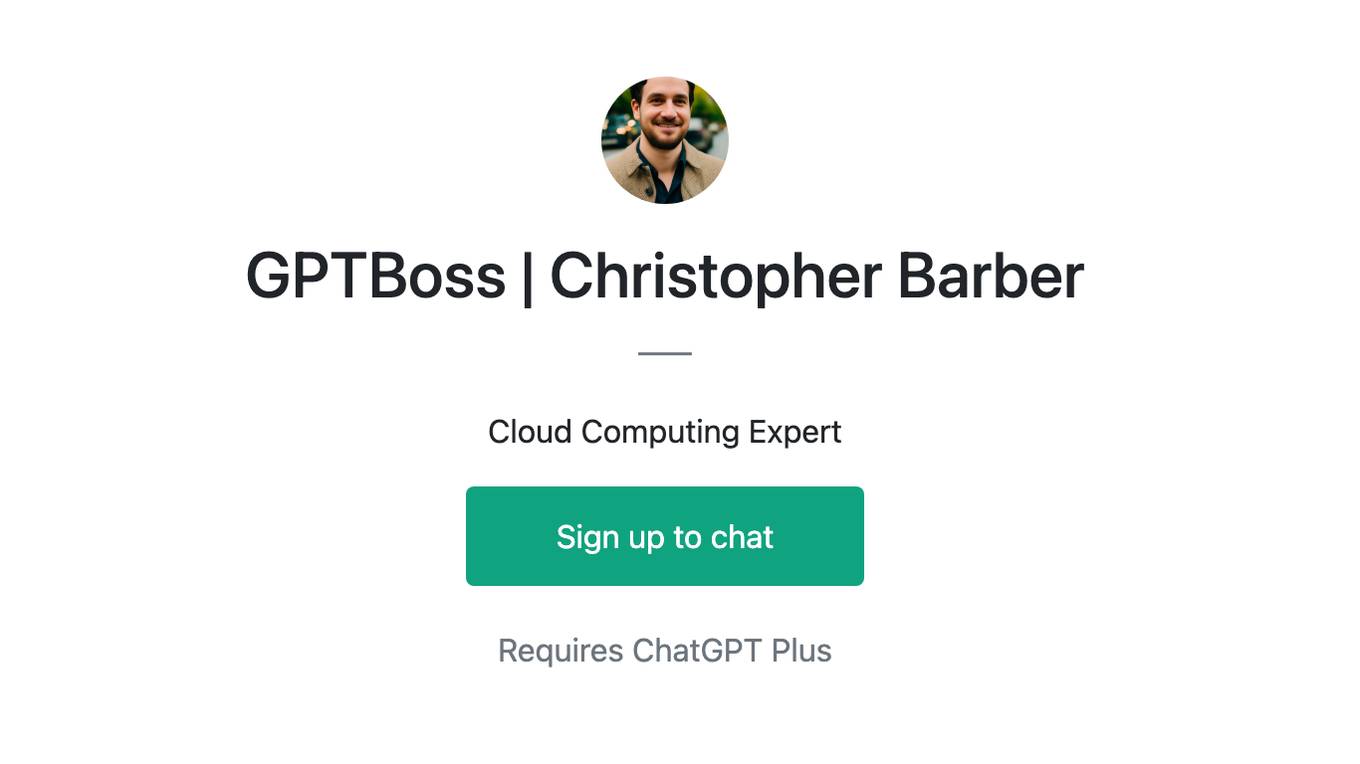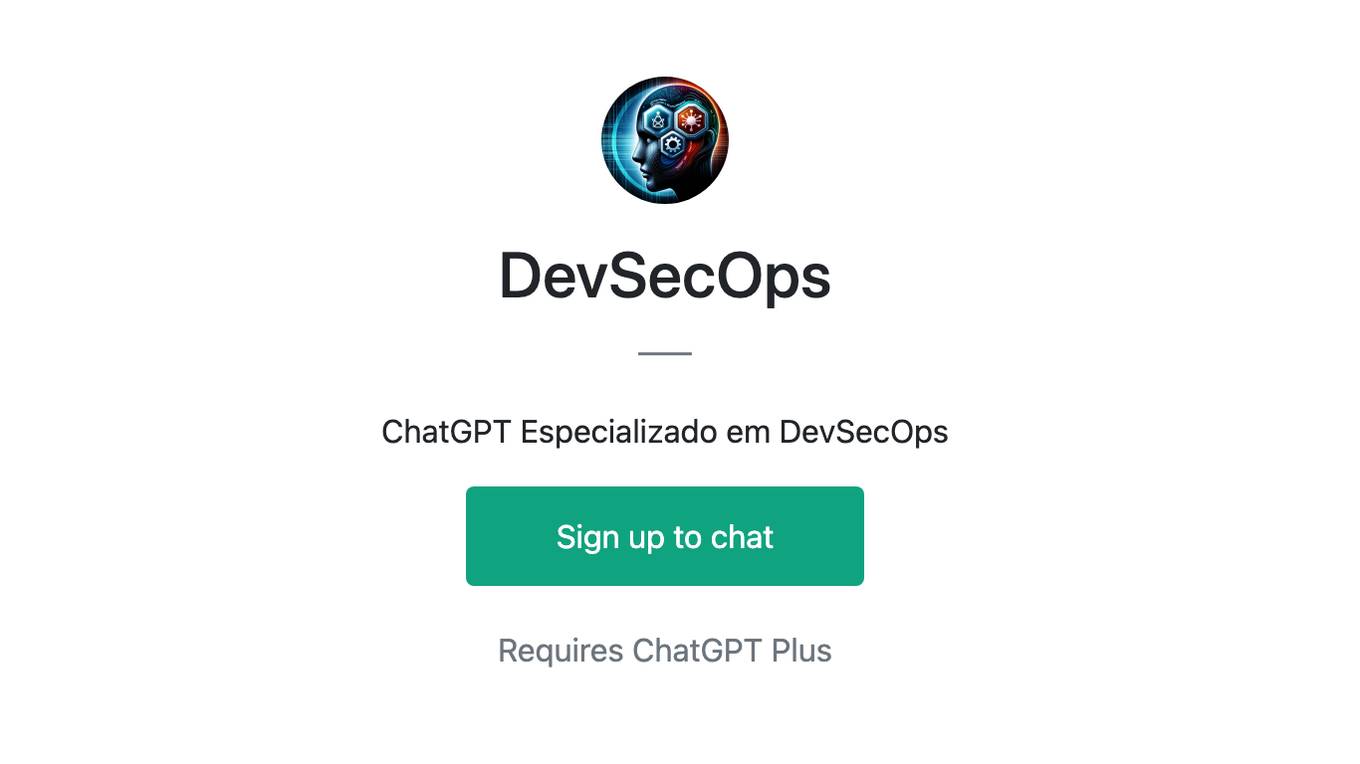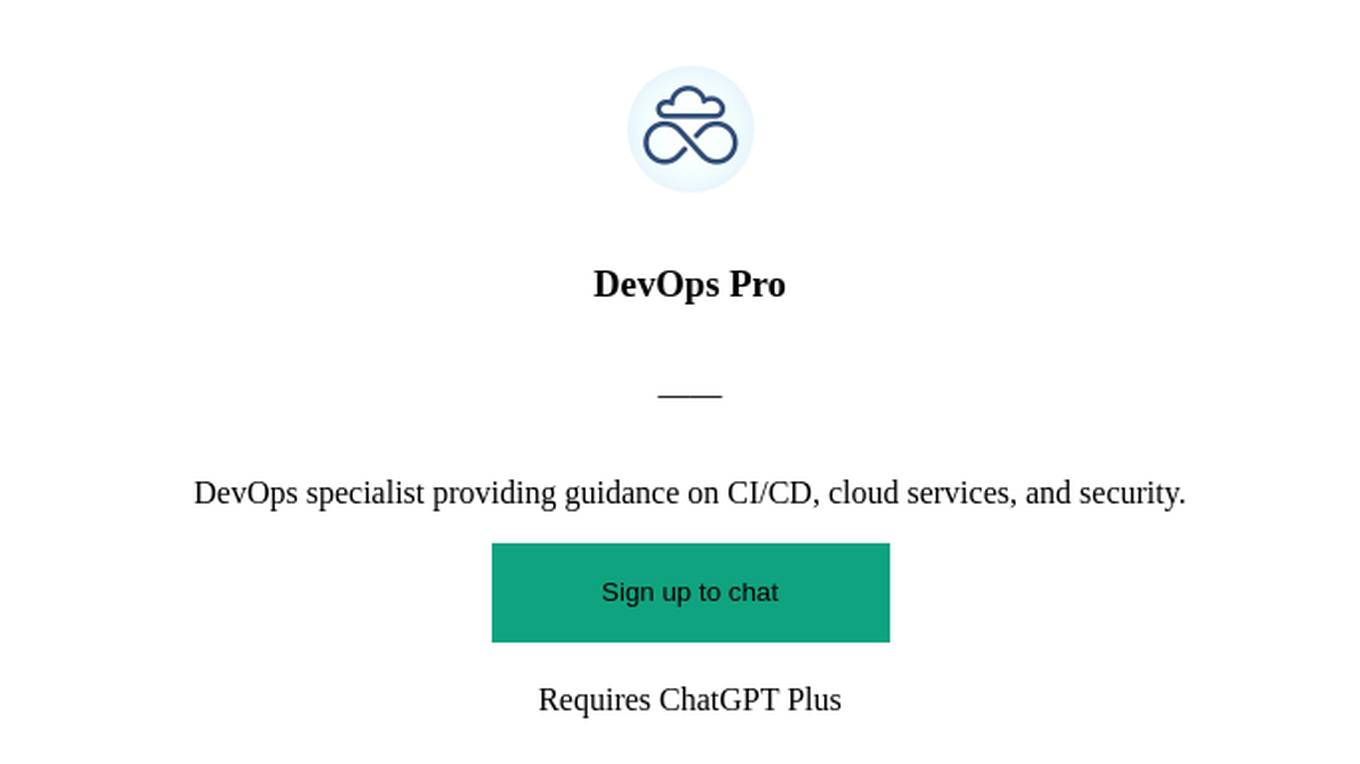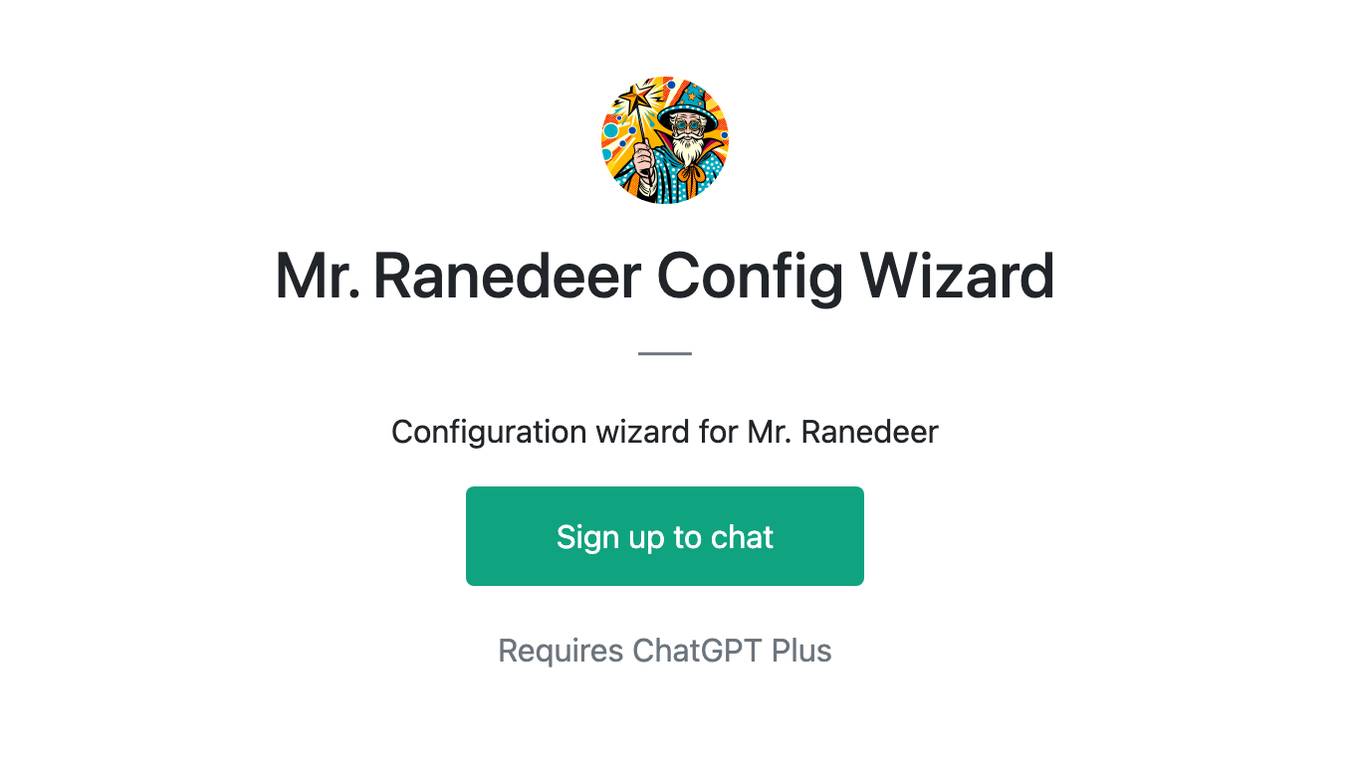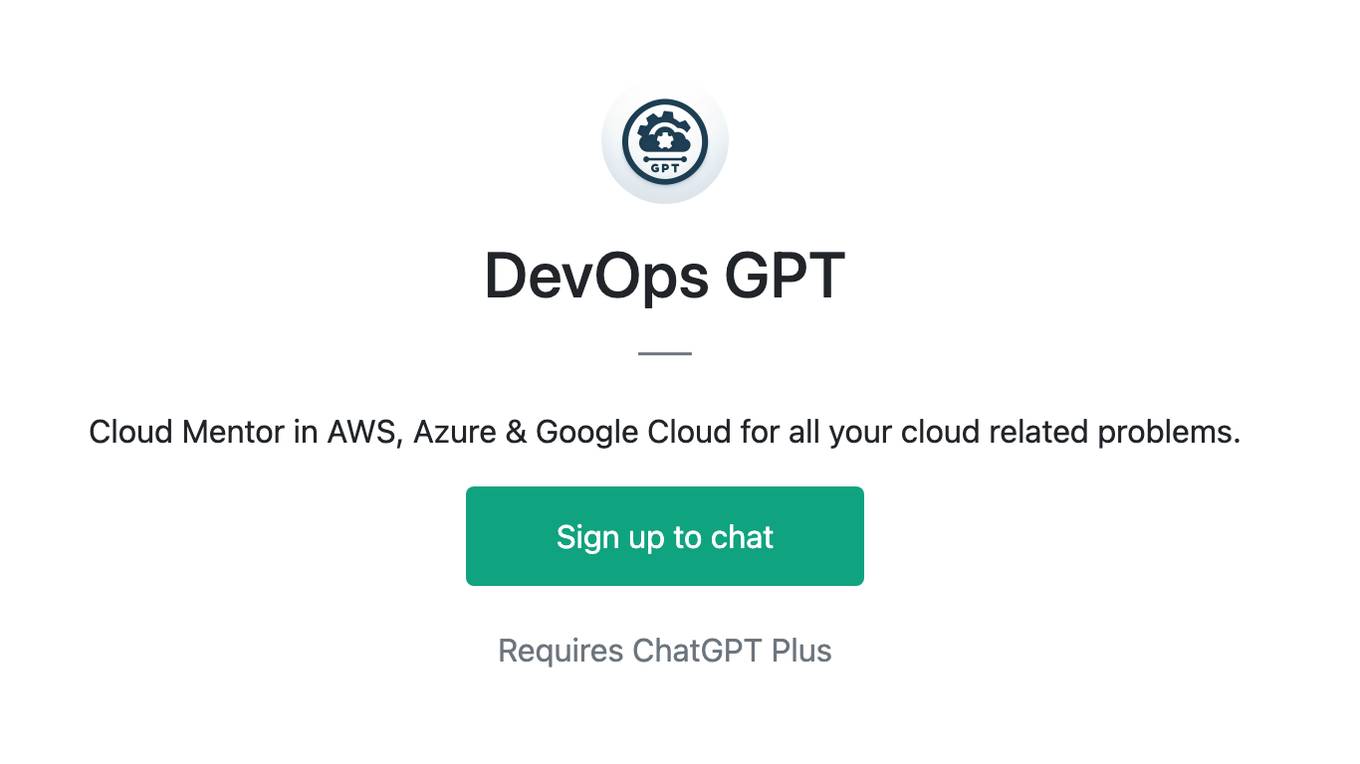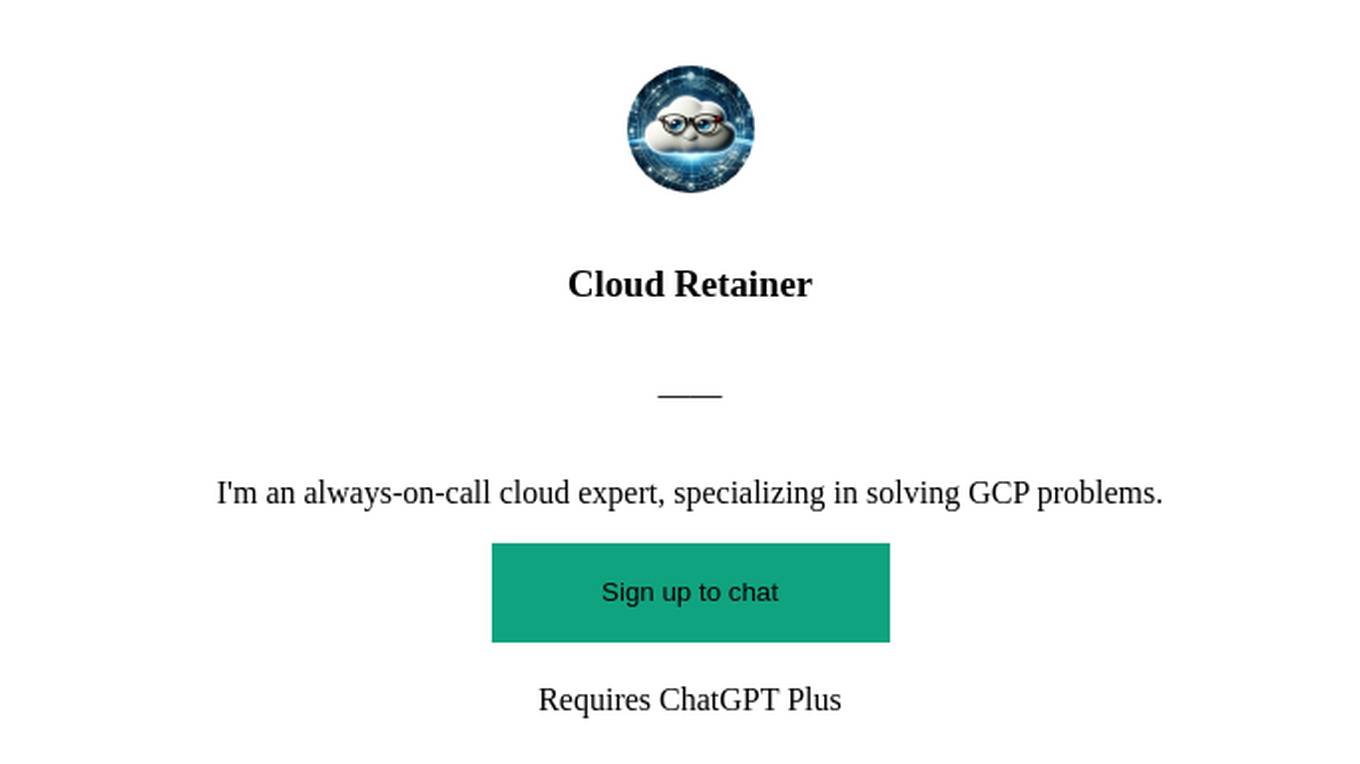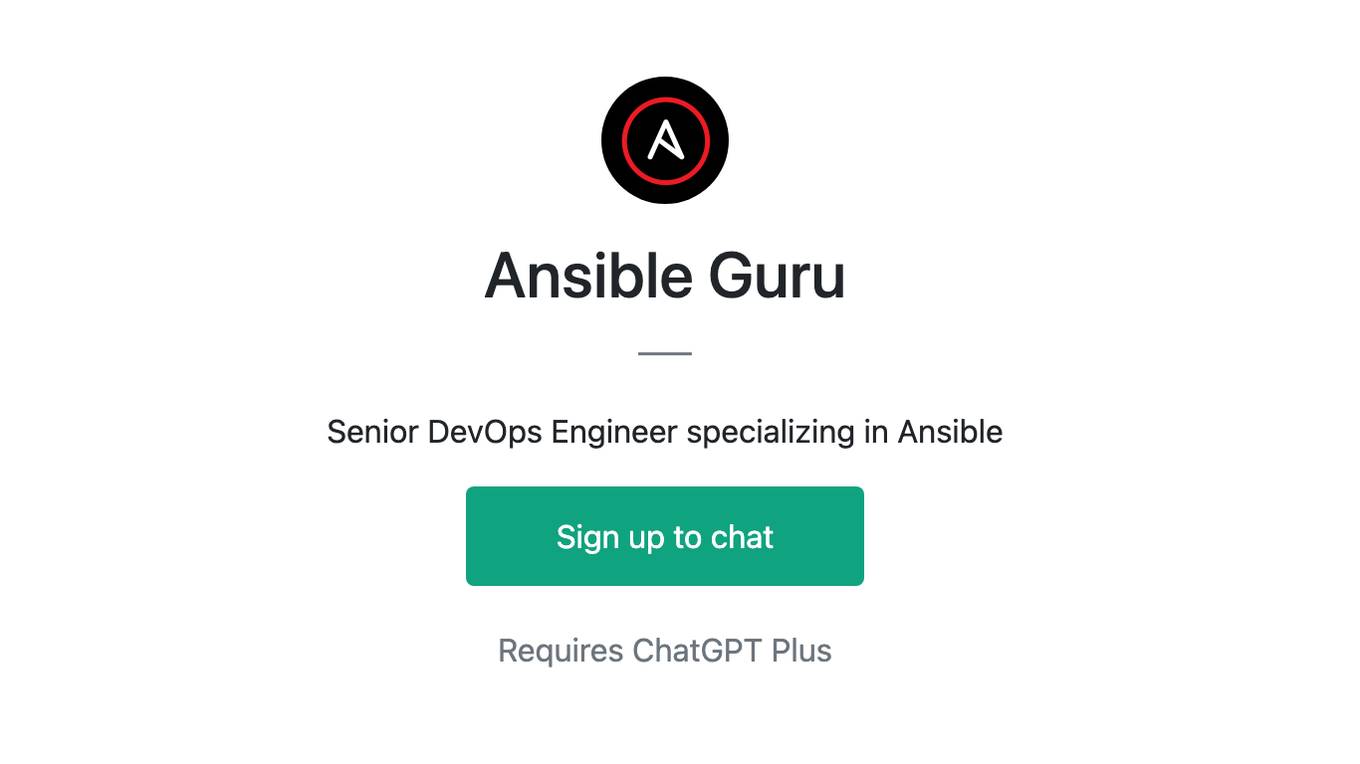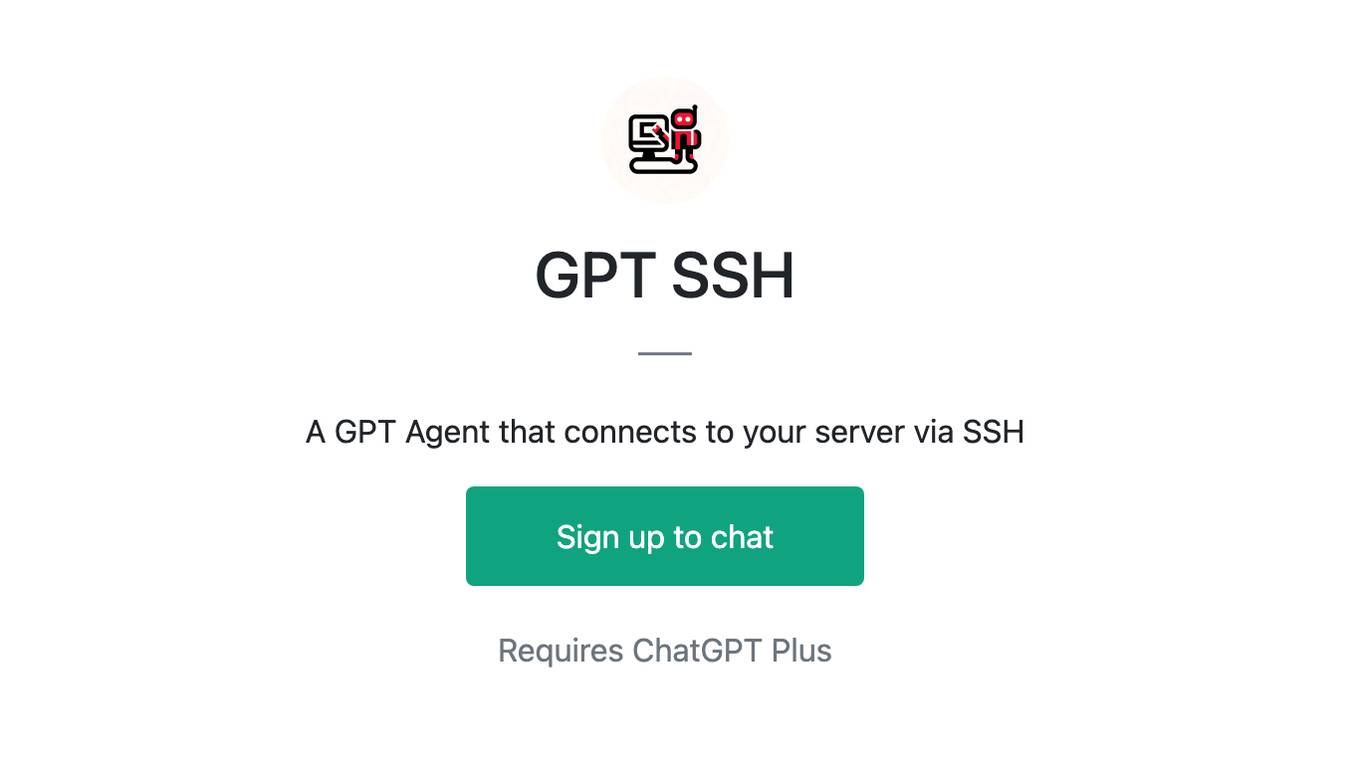Best AI tools for< Cloud Security Analyst >
Infographic
20 - AI tool Sites
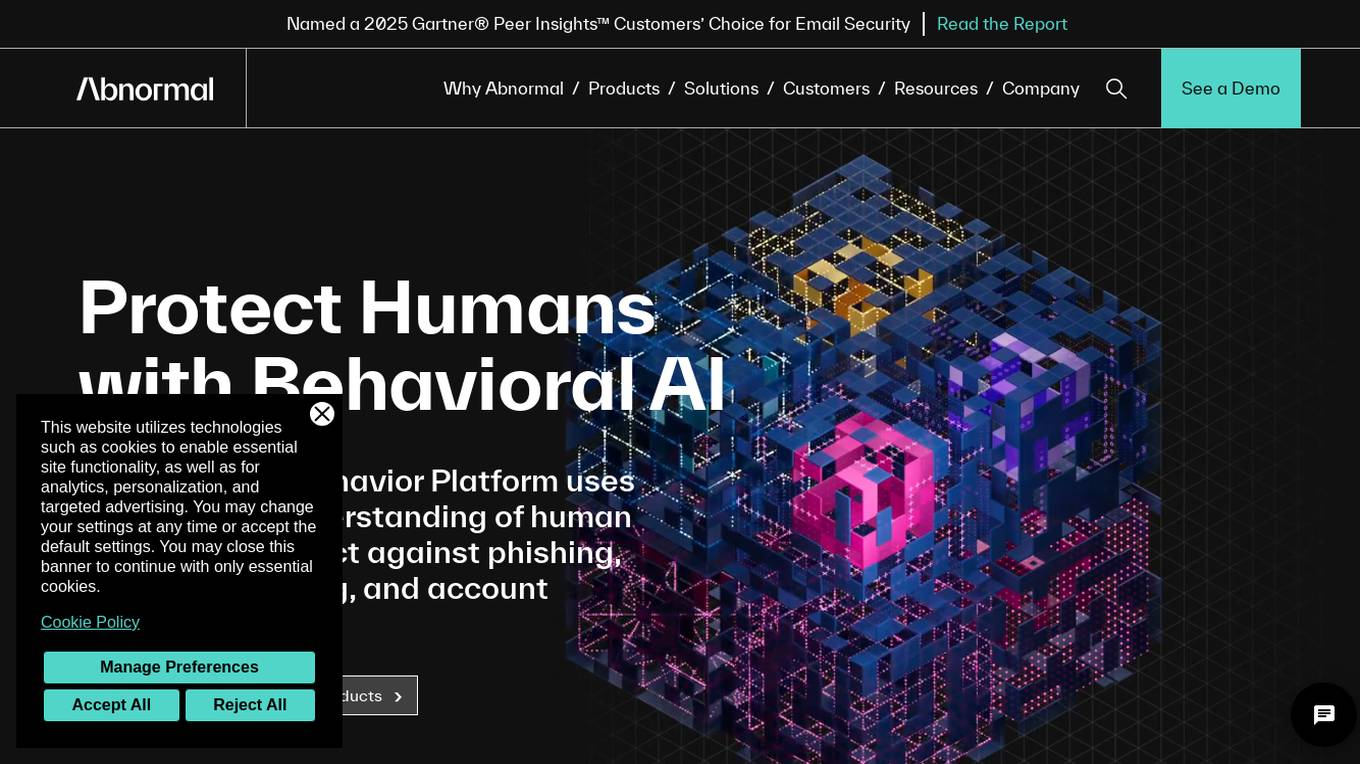
Abnormal Security
Abnormal Security is an AI-powered platform that leverages superhuman understanding of human behavior to protect against email threats such as phishing, social engineering, and account takeovers. The platform is trusted by over 3,000 customers, including 25% of the Fortune 500 companies. Abnormal Security offers a comprehensive cloud email security solution, behavioral anomaly detection, SaaS security, and autonomous AI security agents to provide multi-layered protection against advanced email attacks. The platform is recognized as a leader in email security and AI-native security, delivering unmatched protection and reducing the risk of phishing attacks by 90%.
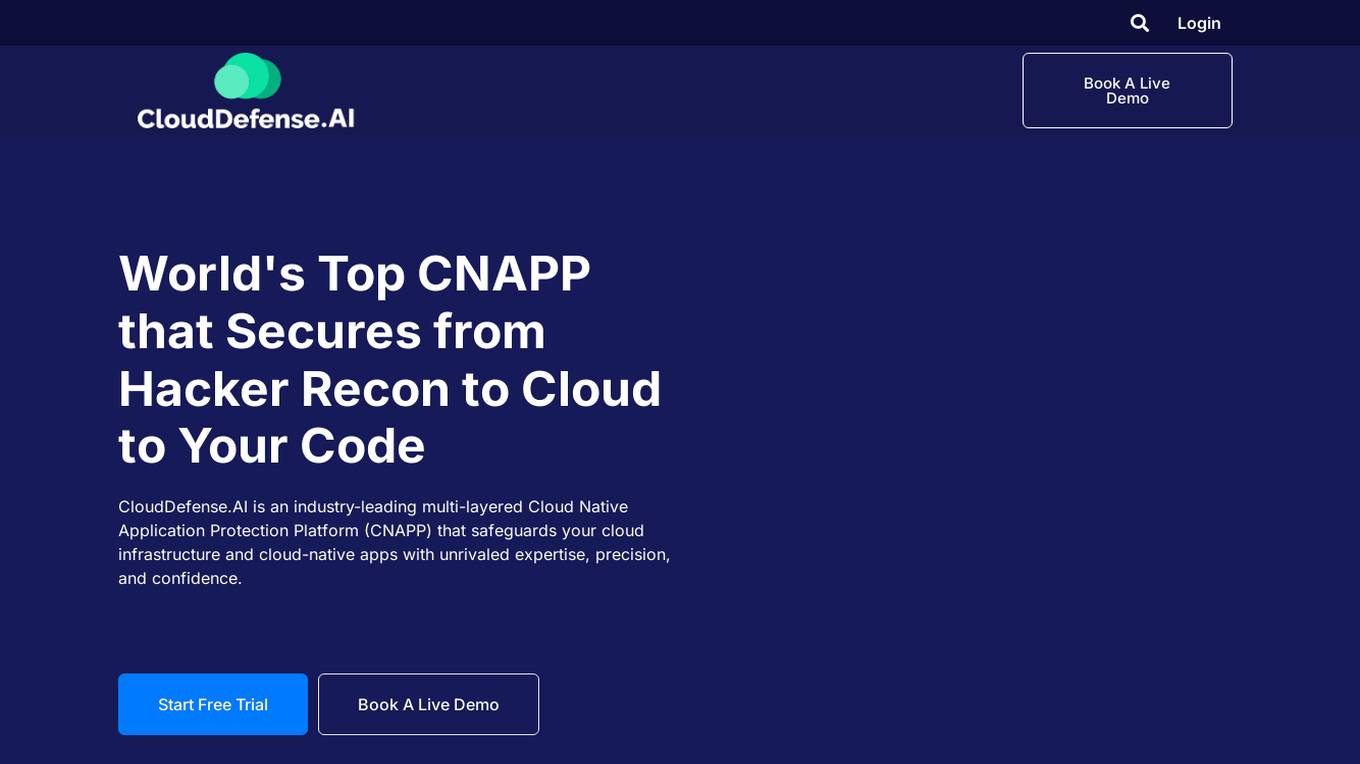
CloudDefense.AI
CloudDefense.AI is an industry-leading multi-layered Cloud Native Application Protection Platform (CNAPP) that safeguards cloud infrastructure and cloud-native apps with expertise, precision, and confidence. It offers comprehensive cloud security solutions, vulnerability management, compliance, and application security testing. The platform utilizes advanced AI technology to proactively detect and analyze real-time threats, ensuring robust protection for businesses against cyber threats.
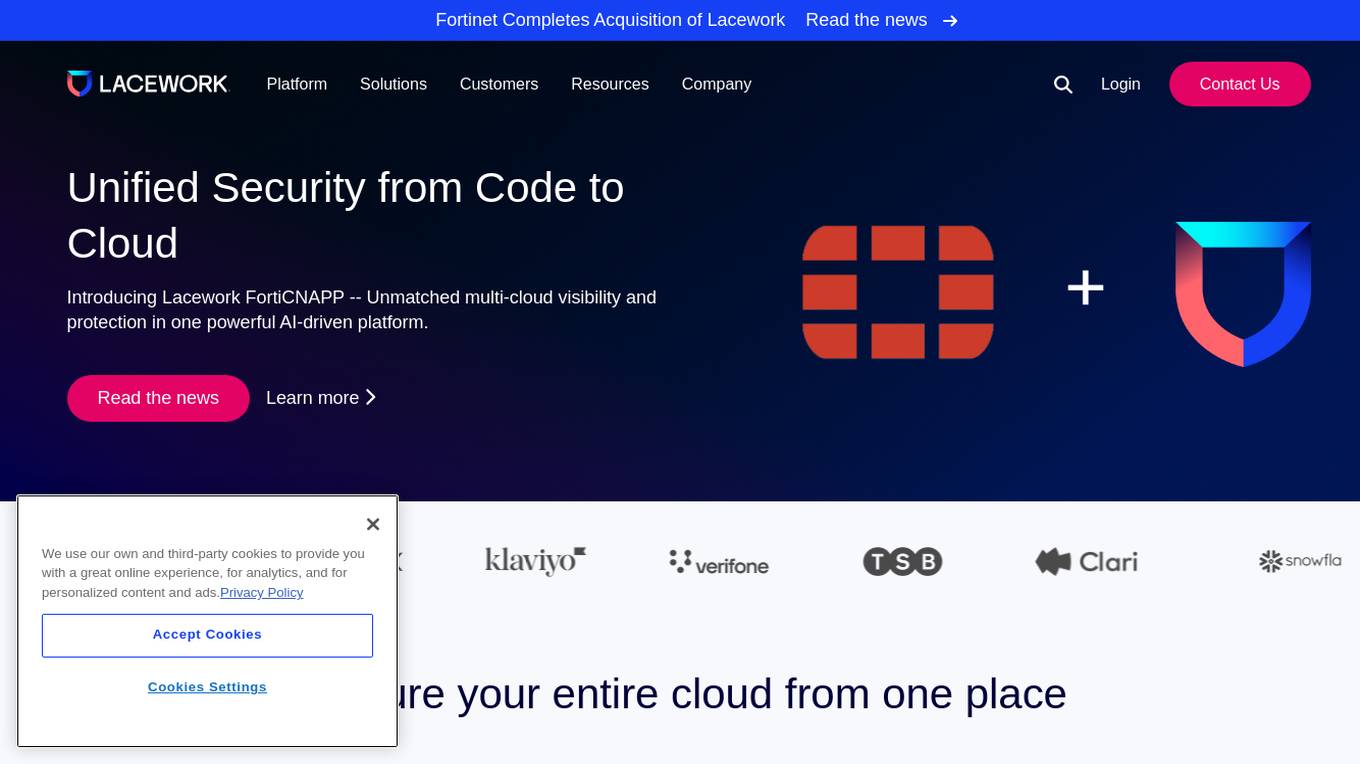
Lacework
Lacework is a cloud security platform that provides comprehensive security solutions for DevOps, Containers, and Cloud Environments. It offers features such as Code Security, Workload Protection, Identities and Entitlements management, Posture Management, Kubernetes Security, Data Posture Management, Infrastructure as Code security, Software Composition Analysis, Application Security Testing, Edge Security, and Platform Overview. Lacework empowers users to secure their entire cloud infrastructure, prioritize risks, protect workloads, and stay compliant by leveraging AI-driven technologies and behavior-based threat detection. The platform helps automate compliance reporting, fix vulnerabilities, and reduce alerts, ultimately enhancing cloud security and operational efficiency.
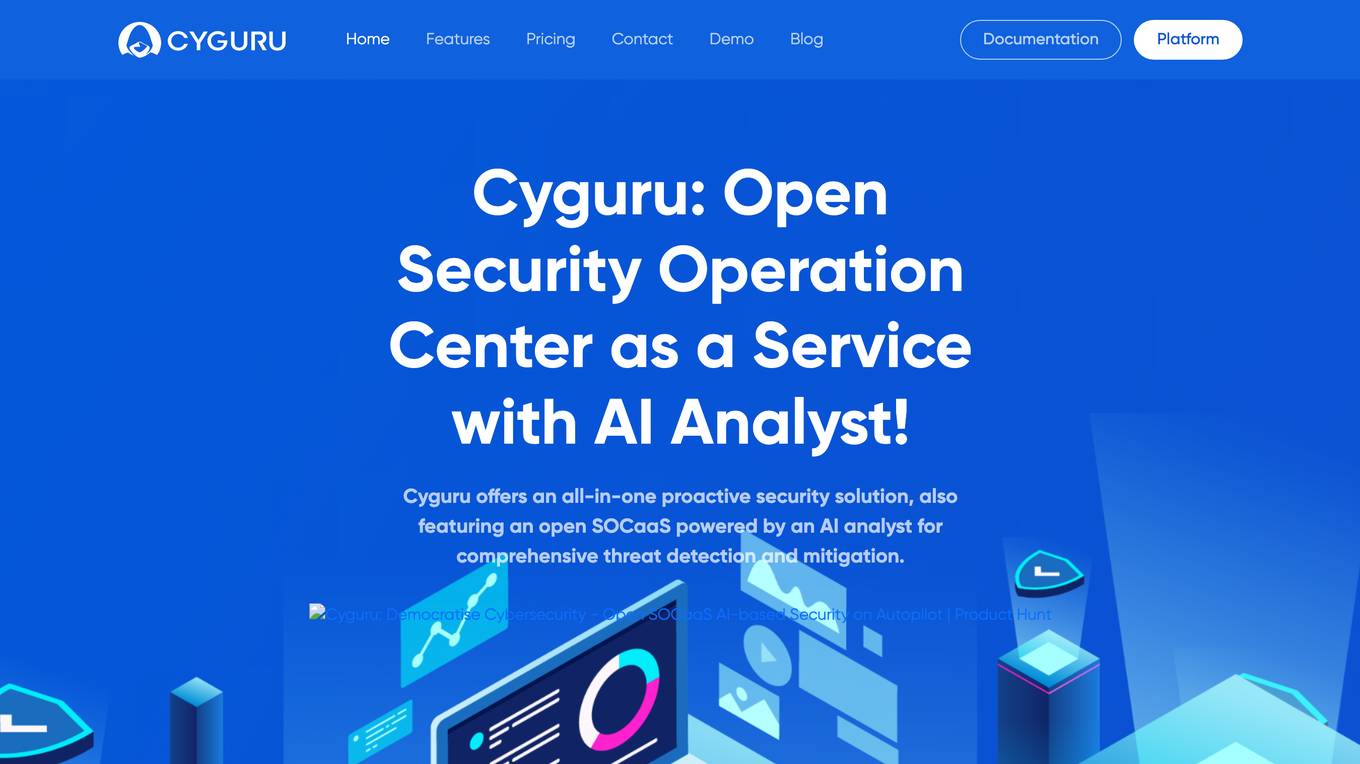
Cyguru
Cyguru is an all-in-one cloud-based AI Security Operation Center (SOC) that offers a comprehensive range of features for a robust and secure digital landscape. Its Security Operation Center is the cornerstone of its service domain, providing AI-Powered Attack Detection, Continuous Monitoring for Vulnerabilities and Misconfigurations, Compliance Assurance, SecPedia: Your Cybersecurity Knowledge Hub, and Advanced ML & AI Detection. Cyguru's AI-Powered Analyst promptly alerts users to any suspicious behavior or activity that demands attention, ensuring timely delivery of notifications. The platform is accessible to everyone, with up to three free servers and subsequent pricing that is more than 85% below the industry average.

OpenBuckets
OpenBuckets is a web application designed to help users find and secure open buckets in cloud storage systems. It provides a simple and efficient way to identify and protect sensitive data that may be exposed due to misconfigured cloud storage settings. With OpenBuckets, users can easily scan their cloud storage accounts for publicly accessible buckets and take necessary actions to safeguard their information.
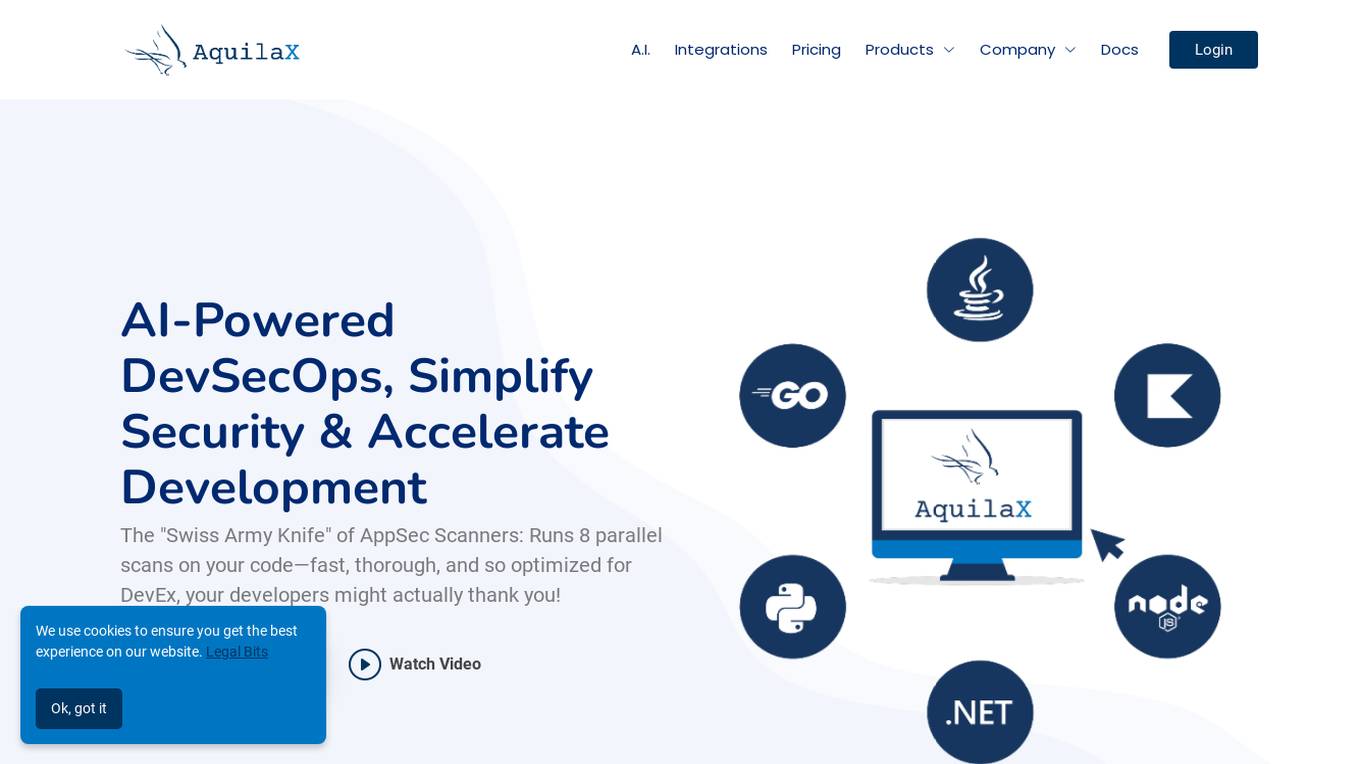
AquilaX
AquilaX is an AI-powered DevSecOps platform that simplifies security and accelerates development processes. It offers a comprehensive suite of security scanning tools, including secret identification, PII scanning, SAST, container scanning, and more. AquilaX is designed to integrate seamlessly into the development workflow, providing fast and accurate results by leveraging AI models trained on extensive datasets. The platform prioritizes developer experience by eliminating noise and false positives, making it a go-to choice for modern Secure-SDLC teams worldwide.
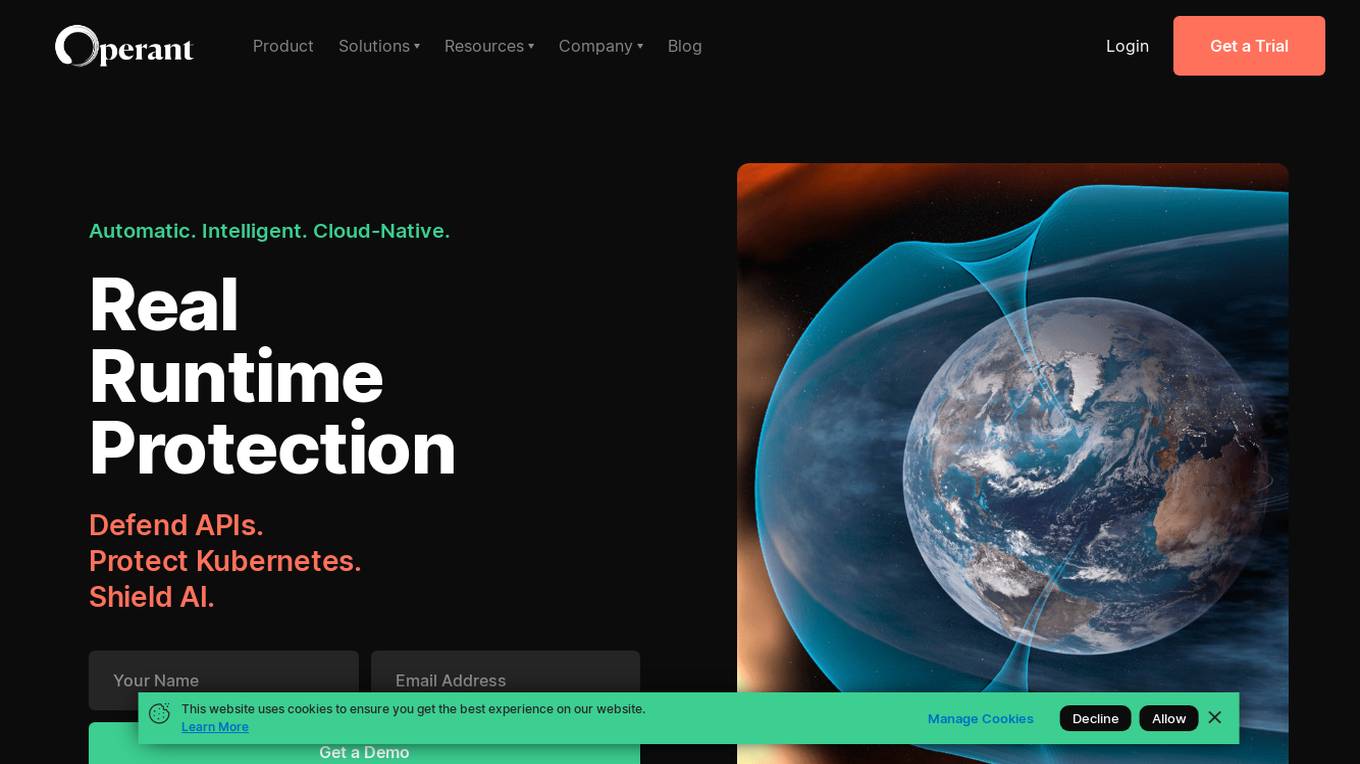
Operant
Operant is a cloud-native runtime protection platform that offers instant visibility and control from infrastructure to APIs. It provides AI security shield for applications, API threat protection, Kubernetes security, automatic microsegmentation, and DevSecOps solutions. Operant helps defend APIs, protect Kubernetes, and shield AI applications by detecting and blocking various attacks in real-time. It simplifies security for cloud-native environments with zero instrumentation, application code changes, or integrations.
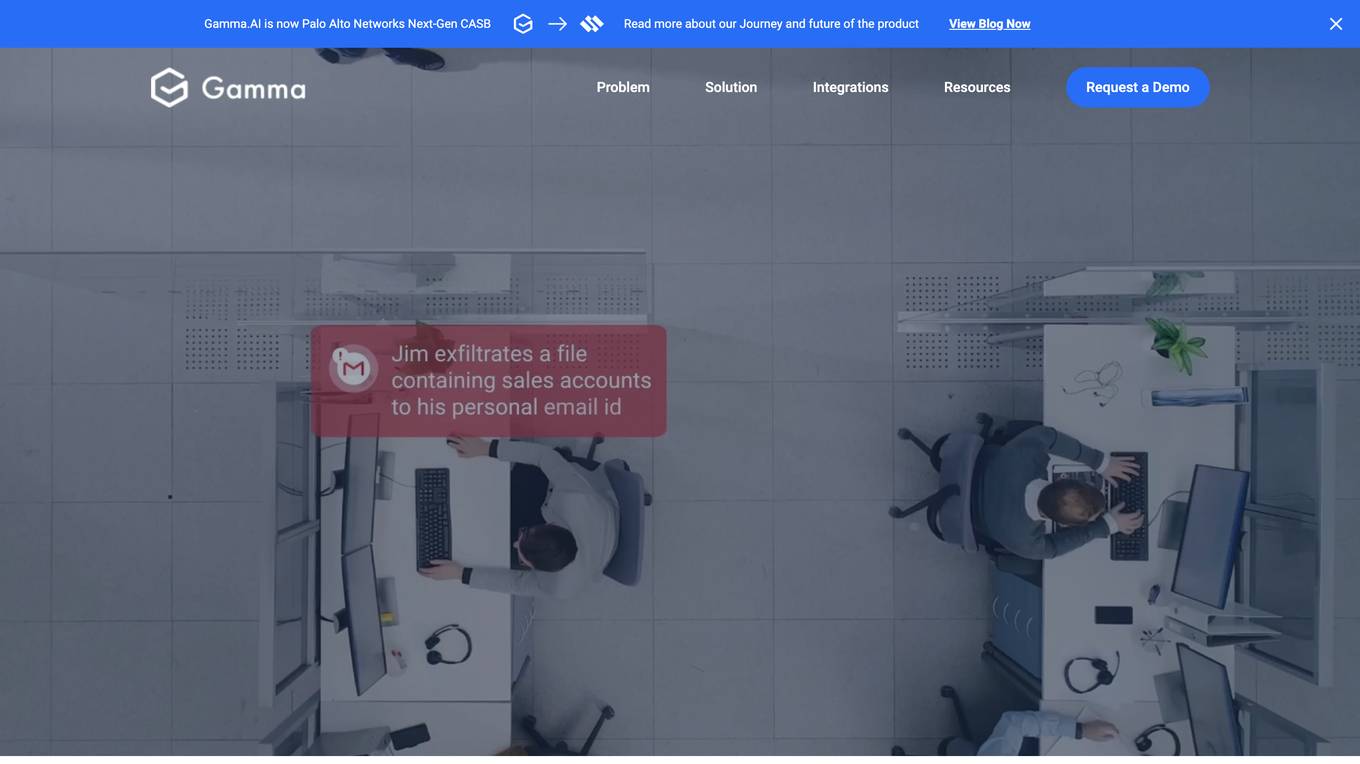
Gamma.AI
Gamma.AI is a cloud-based data loss prevention (DLP) solution that uses artificial intelligence (AI) to protect sensitive data in SaaS applications. It provides real-time data discovery and classification, user behavior analytics, and automated remediation capabilities. Gamma.AI is designed to help organizations meet compliance requirements and protect their data from unauthorized access, theft, and loss.
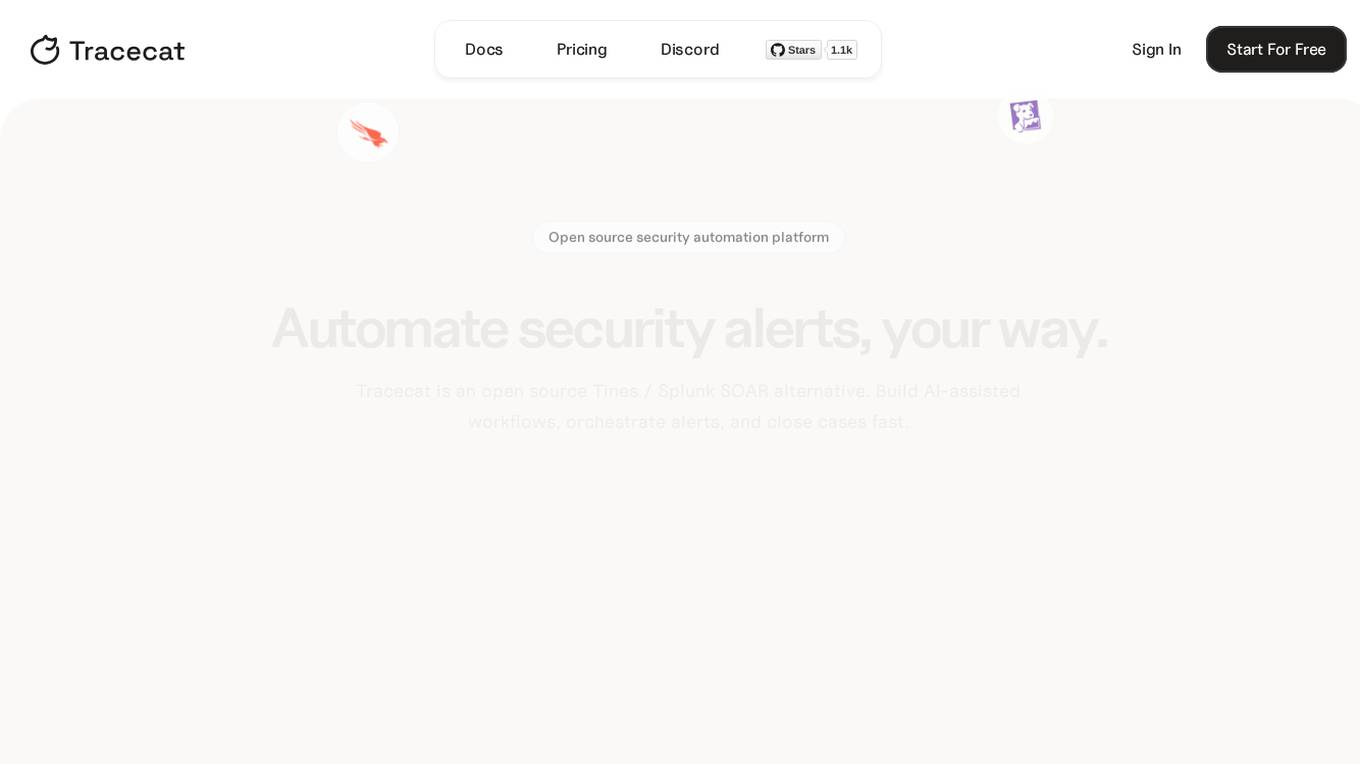
Tracecat
Tracecat is an open-source security automation platform that helps you automate security alerts, build AI-assisted workflows, orchestrate alerts, and close cases fast. It is a Tines / Splunk SOAR alternative that is built for builders and allows you to experiment for free. You can deploy Tracecat on your own infrastructure or use Tracecat Cloud with no maintenance overhead. Tracecat is Apache-2.0 licensed, which means it is open vision, open community, and open development. You can have your say in the future of security automation. Tracecat is no-code first, but you can also code as well. You can build automations fast with no-code and customize without vendor lock-in using Python. Tracecat has a click-and-drag workflow builder that allows you to automate SecOps using pre-built actions (API calls, webhooks, data transforms, AI tasks, and more) combined into workflows. No code is required. Tracecat also has a built-in case management system that allows you to open cases directly from workflows and track and manage security incidents all in one platform.
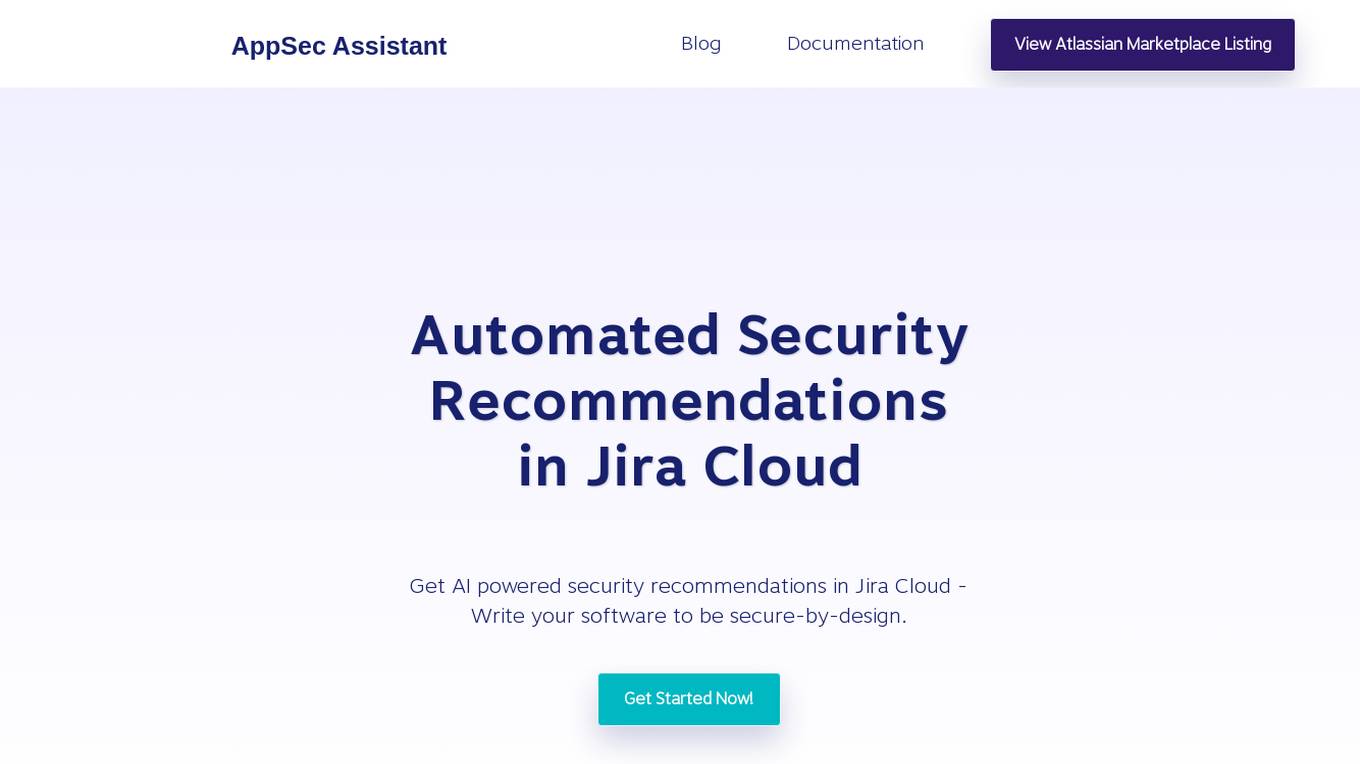
AppSec Assistant
AppSec Assistant is an AI-powered application designed to provide automated security recommendations in Jira Cloud. It focuses on ensuring data security by enabling secure-by-design software development. The tool simplifies setup by allowing users to add their OpenAI API key and organization, encrypts and stores data using Atlassian's Storage API, and provides tailored security recommendations for each ticket to reduce manual AppSec reviews. AppSec Assistant empowers developers by keeping up with their pace and helps in easing the security review bottleneck.
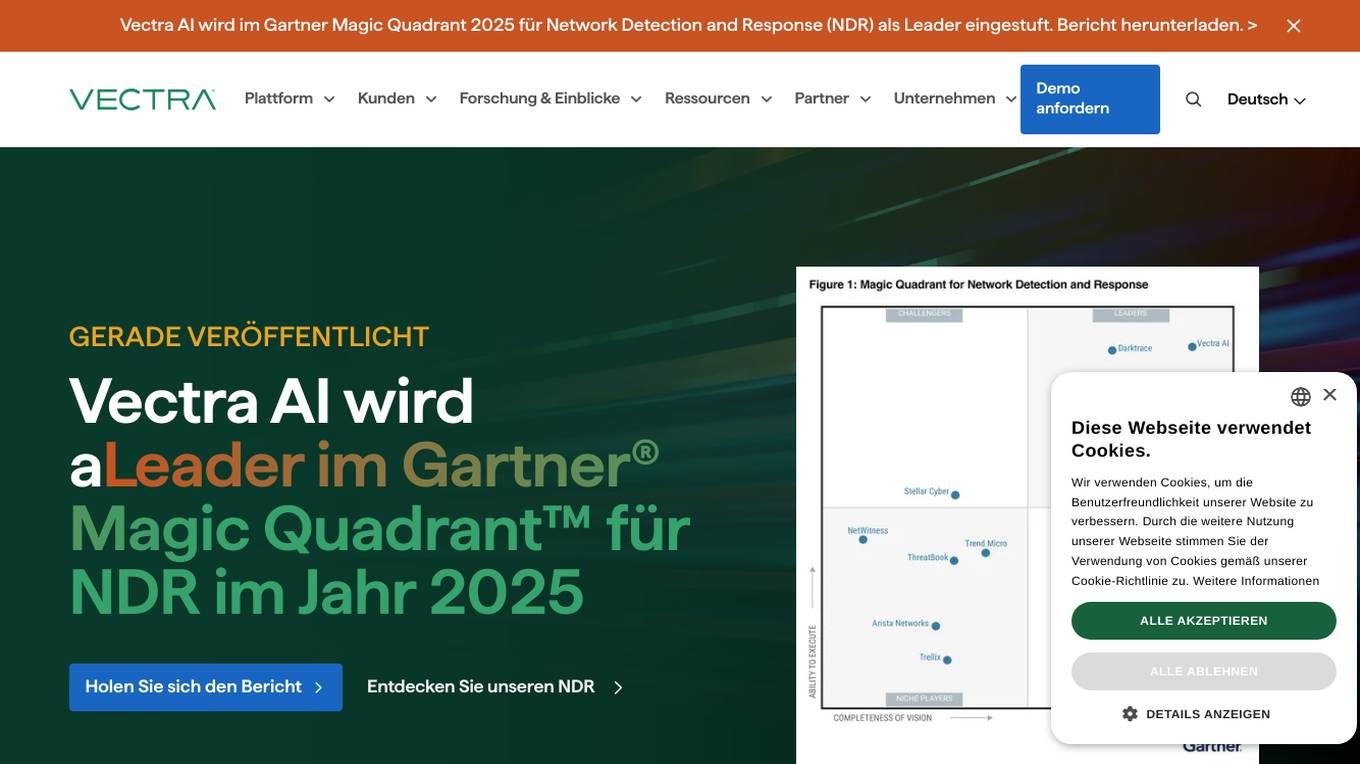
Vectra AI
Vectra AI is a leading cybersecurity AI application that stops attacks that others cannot. It is recognized in the Gartner Magic Quadrant 2025 for Network Detection and Response (NDR) as a leader. Vectra AI's platform protects modern networks from advanced threats by providing real-time attack signal intelligence and AI-driven detections. It equips security analysts with the information needed to quickly stop attacks across various security application scenarios. The application covers a wide range of security areas such as SOC modernization, SIEM optimization, IDS replacement, EDR extension, cloud resilience, and more.
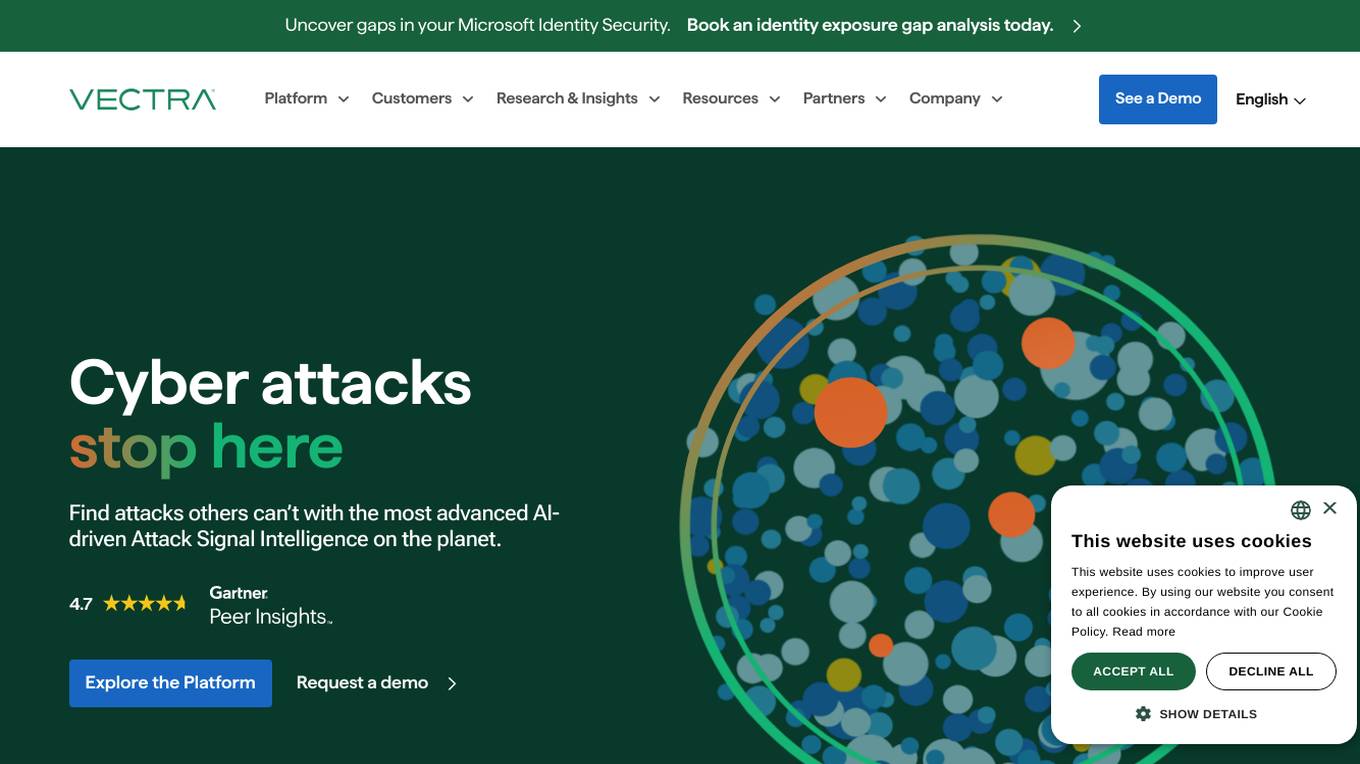
Vectra AI
Vectra AI is an advanced AI-driven cybersecurity platform that helps organizations detect, prioritize, investigate, and respond to sophisticated cyber threats in real-time. The platform provides Attack Signal Intelligence to arm security analysts with the necessary intel to stop attacks fast. Vectra AI offers integrated signal for extended detection and response (XDR) across various domains such as network, identity, cloud, and endpoint security. Trusted by 1,500 enterprises worldwide, Vectra AI is known for its patented AI security solutions that deliver the best attack signal intelligence on the planet.
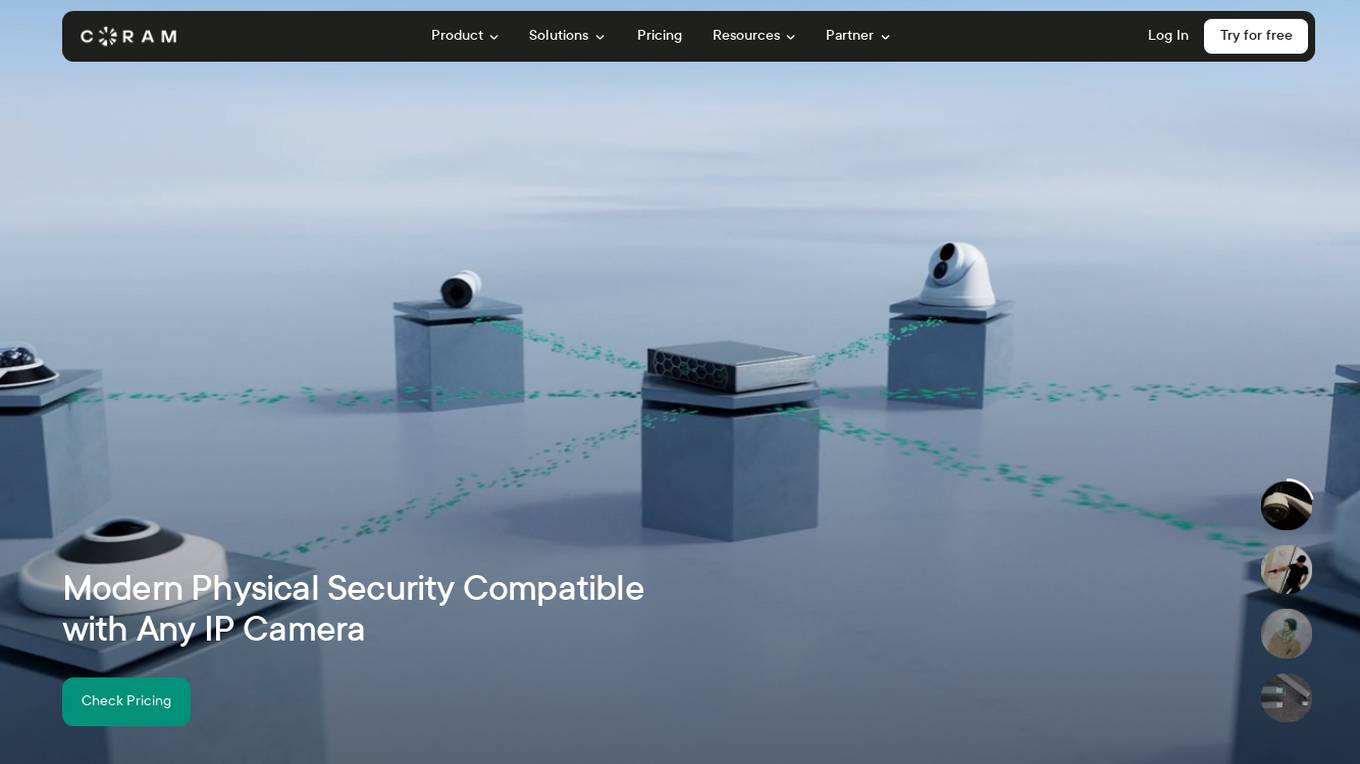
Coram AI
Coram AI is a modern business video security platform that offers AI-powered solutions for various industries such as warehouse, manufacturing, healthcare, education, and more. It provides advanced features like gun detection, productivity alerts, facial recognition, and safety alerts to enhance security and operations. Coram AI's flexible architecture allows users to seamlessly integrate with any IP camera and scale effortlessly to meet their demands. With natural language search capabilities, users can quickly find relevant footage and improve decision-making. Trusted by local businesses and Fortune 500 companies, Coram AI delivers real business value through innovative AI tools and reliable customer support.
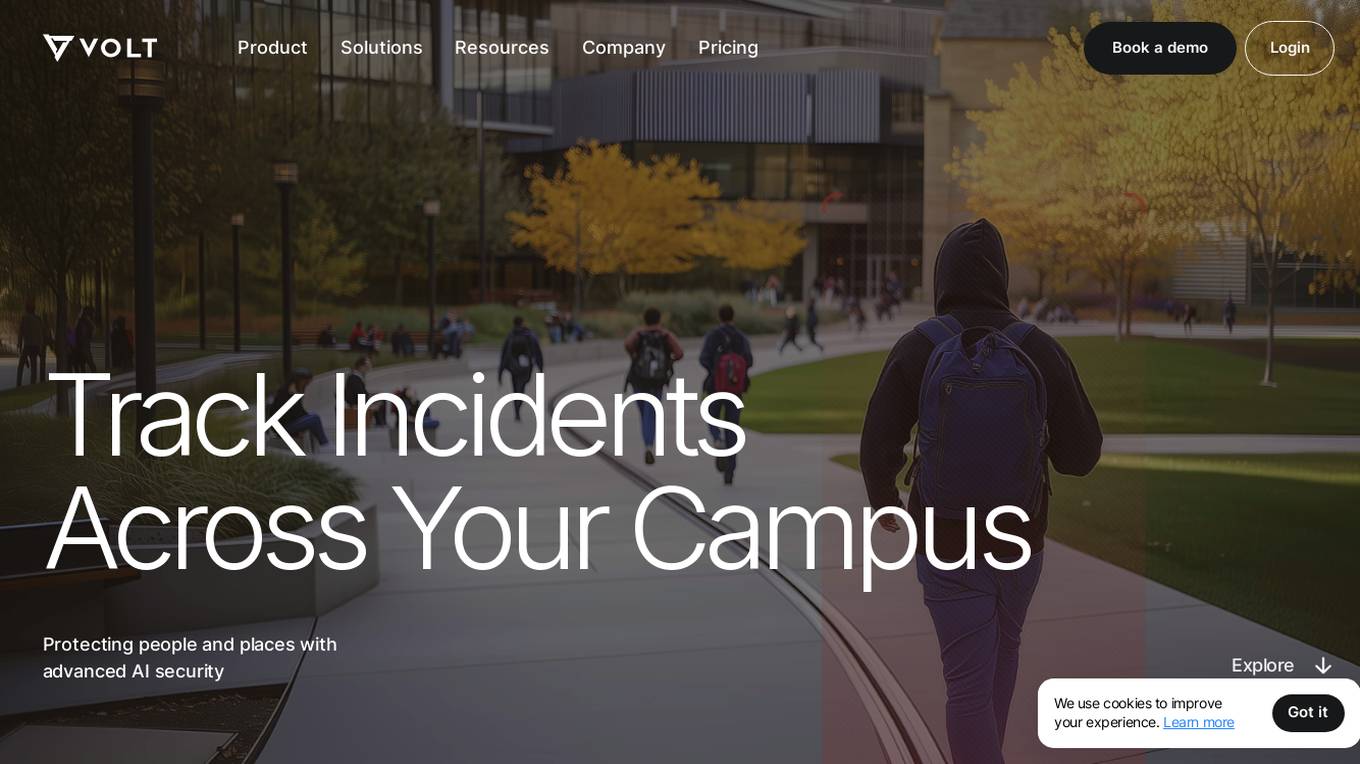
VOLT AI
VOLT AI is a cloud-based enterprise security application that utilizes advanced AI technology to intercept threats in real-time. The application offers solutions for various industries such as education, corporate, and cities, focusing on perimeter security, medical emergencies, and weapons detection. VOLT AI provides features like unified cameras, video intelligence, real-time notifications, automated escalations, and digital twin creation for advanced situational awareness. The application aims to enhance safety and security by detecting security risks and notifying users promptly.
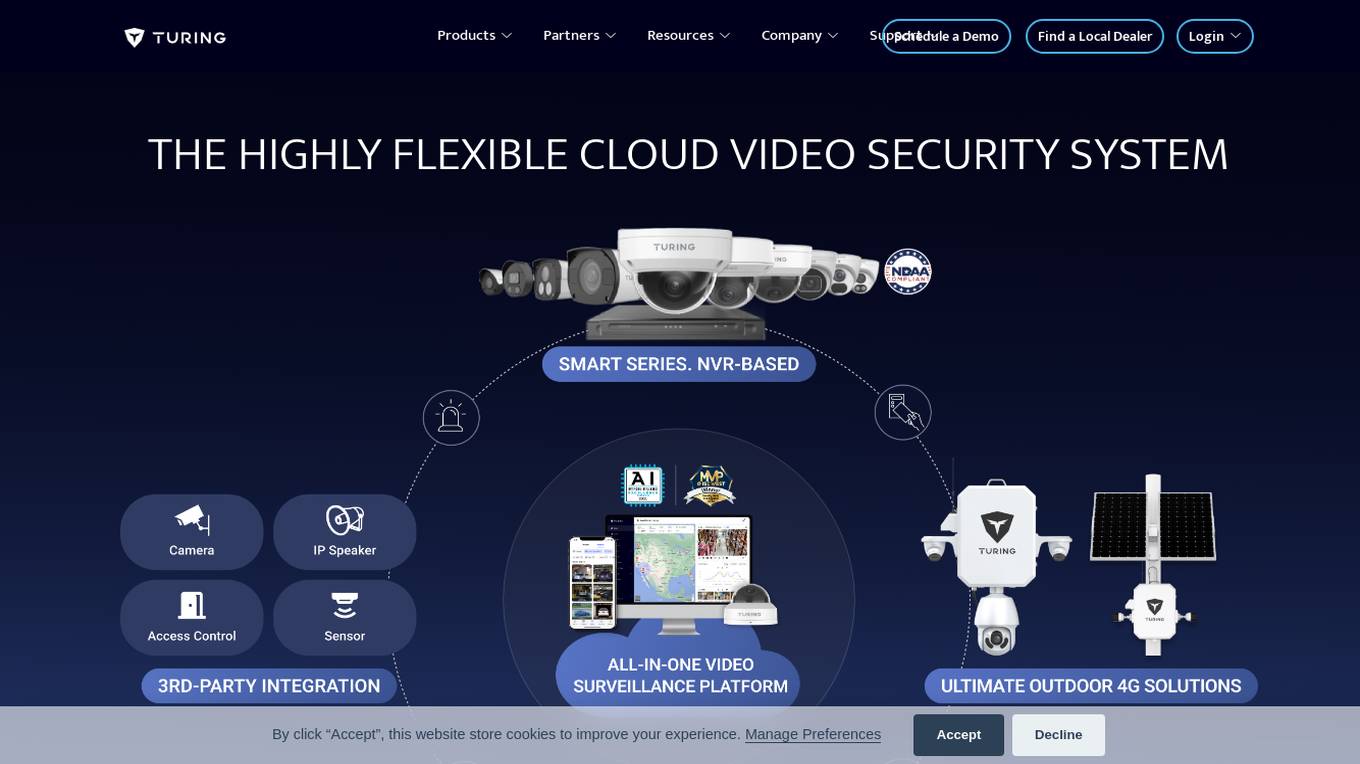
Turing AI
Turing AI is a cloud-based video security system powered by artificial intelligence. It offers a range of AI-powered video surveillance products and solutions to enhance safety, security, and operations. The platform provides smart video search capabilities, real-time alerts, instant video sharing, and hardware offerings compatible with various cameras. With flexible licensing options and integration with third-party devices, Turing AI is trusted by customers across industries for its robust and innovative approach to cloud video security.
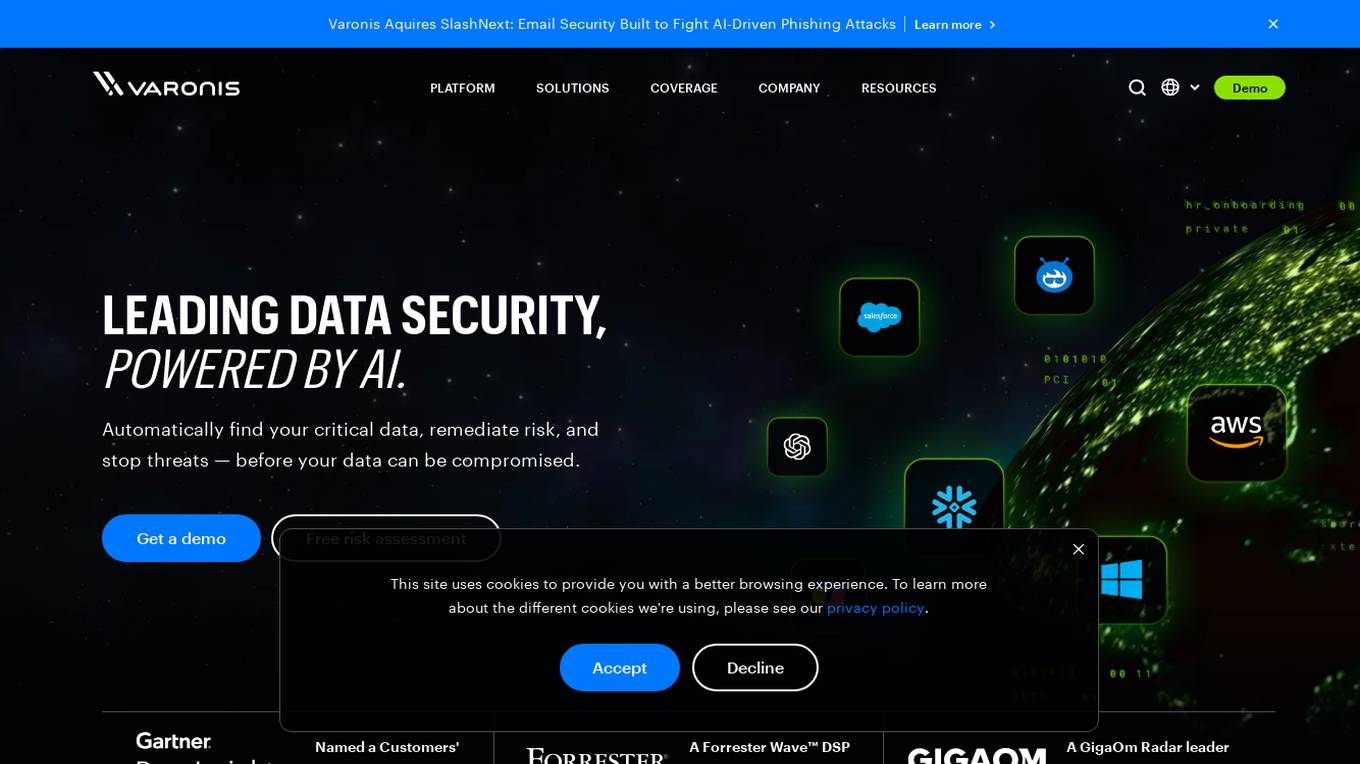
Varonis
Varonis is an AI-powered data security platform that provides end-to-end data security solutions for organizations. It offers automated outcomes to reduce risk, enforce policies, and stop active threats. Varonis helps in data discovery & classification, data security posture management, data-centric UEBA, data access governance, and data loss prevention. The platform is designed to protect critical data across multi-cloud, SaaS, hybrid, and AI environments.
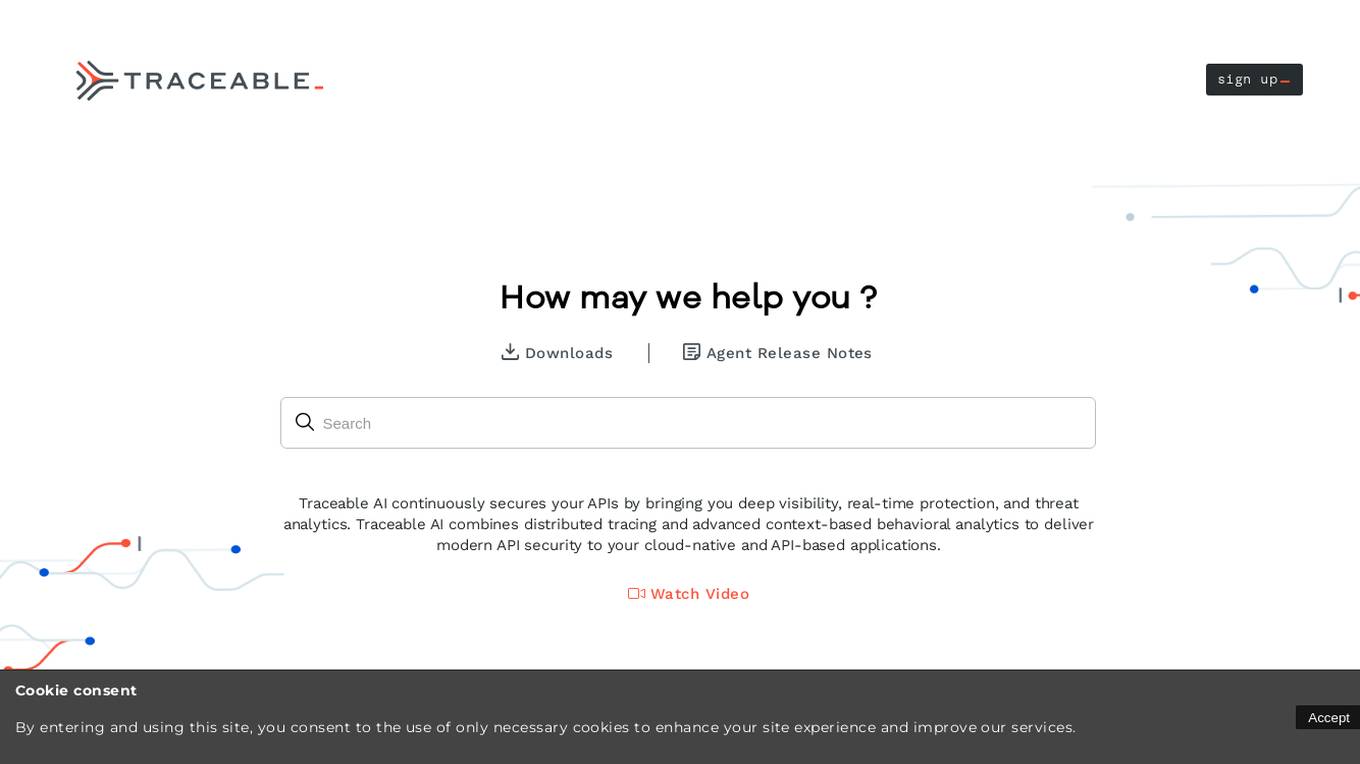
Traceable
Traceable is an AI-driven application designed to enhance API security for Cloud-Native Apps. It collects API traffic across the application landscape and utilizes advanced context-based behavioral analytics AI engine to provide insights on APIs, data exposure, threat analytics, and forensics. The platform offers features for API cataloging, activity monitoring, endpoint details, ownership, vulnerabilities, protection against security events, testing, analytics, and more. Traceable also allows for role-based access control, policy configuration, data classification, and integration with third-party solutions for data collection and security. It is a comprehensive tool for API security and threat detection in modern cloud environments.
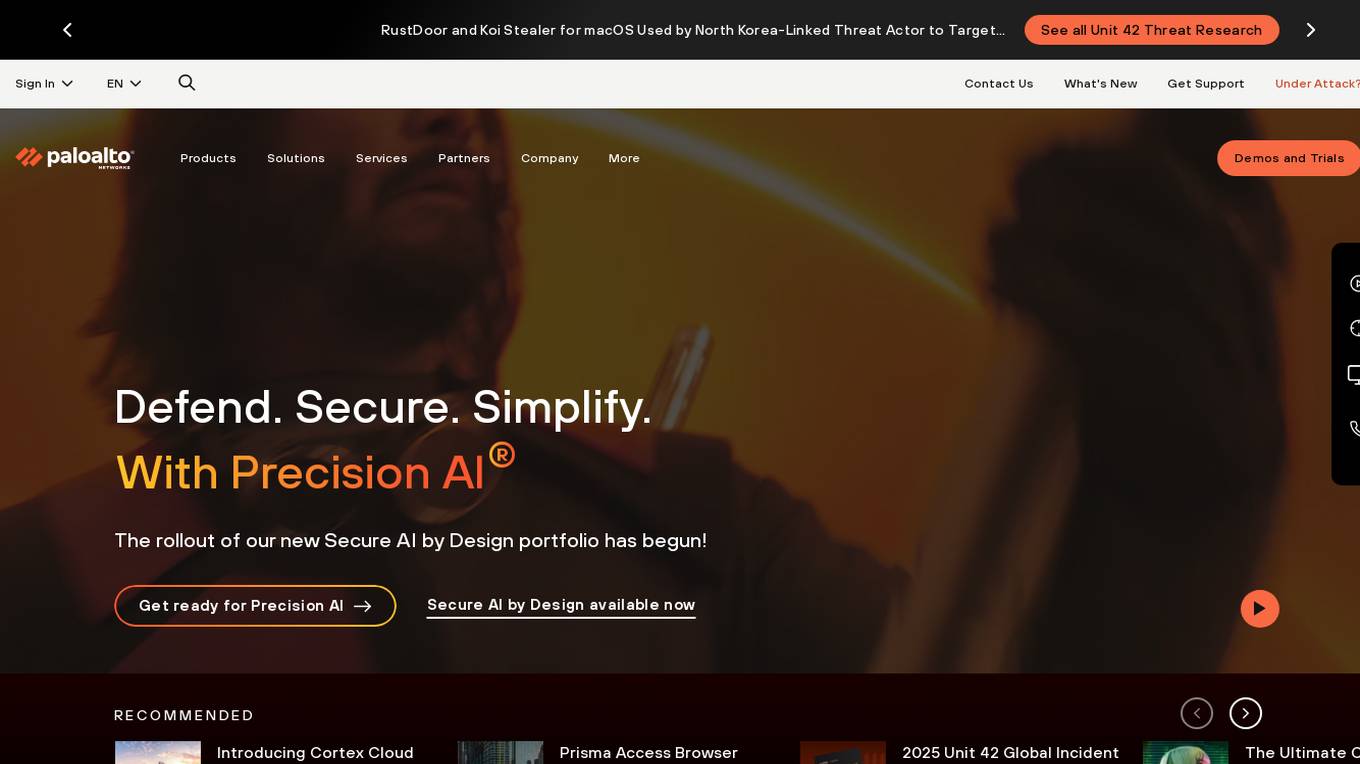
Palo Alto Networks
Palo Alto Networks is a cybersecurity company offering advanced security solutions powered by Precision AI to protect modern enterprises from cyber threats. The company provides network security, cloud security, and AI-driven security operations to defend against AI-generated threats in real time. Palo Alto Networks aims to simplify security and achieve better security outcomes through platformization, intelligence-driven expertise, and proactive monitoring of sophisticated threats.
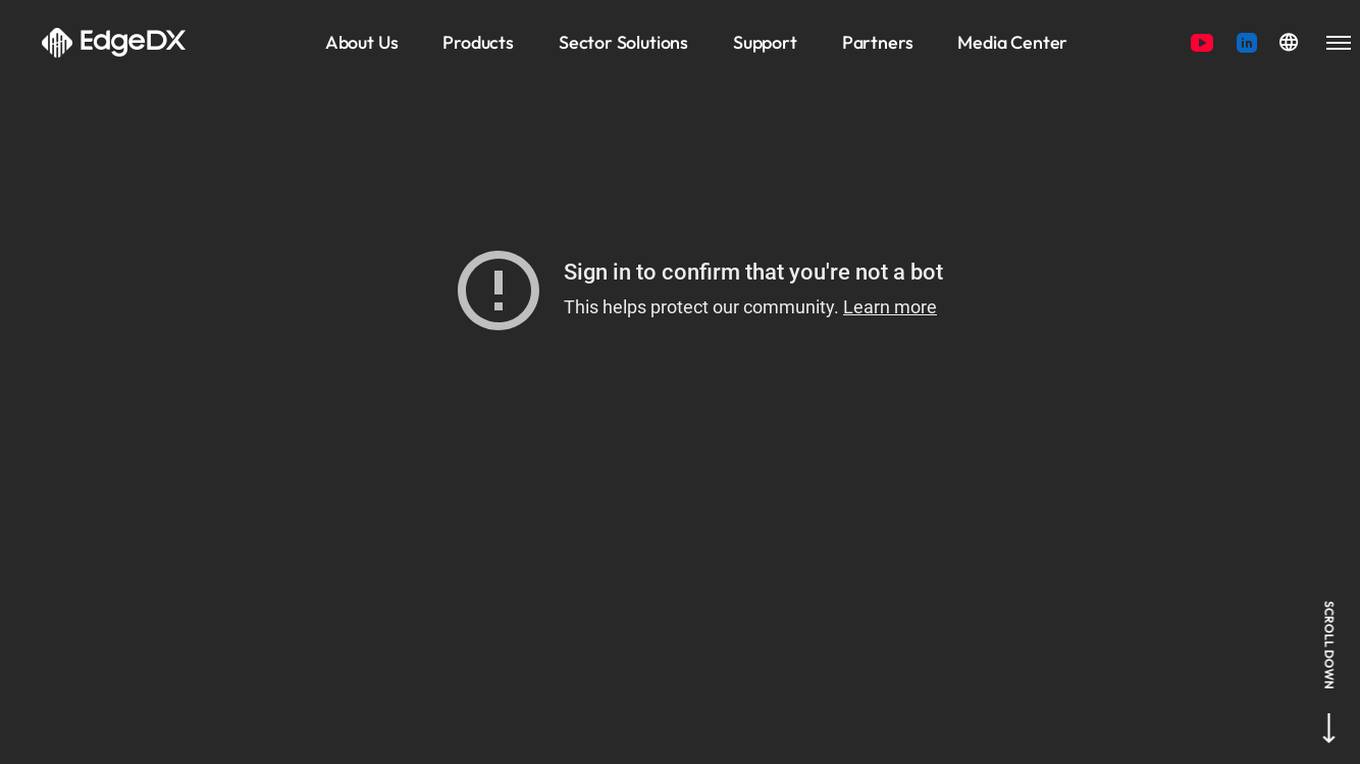
EdgeDX
EdgeDX is a leading provider of Edge AI Video Analysis Solutions, specializing in security and surveillance, construction and logistics safety, efficient store management, public safety management, and intelligent transportation system. The application offers over 50 intuitive AI apps capable of advanced human behavior analysis, supports various protocols and VMS, and provides features like P2P based mobile alarm viewer, LTE & GPS support, and internal recording with M.2 NVME SSD. EdgeDX aims to protect customer assets, ensure safety, and enable seamless integration with AI Bridge for easy and efficient implementation.
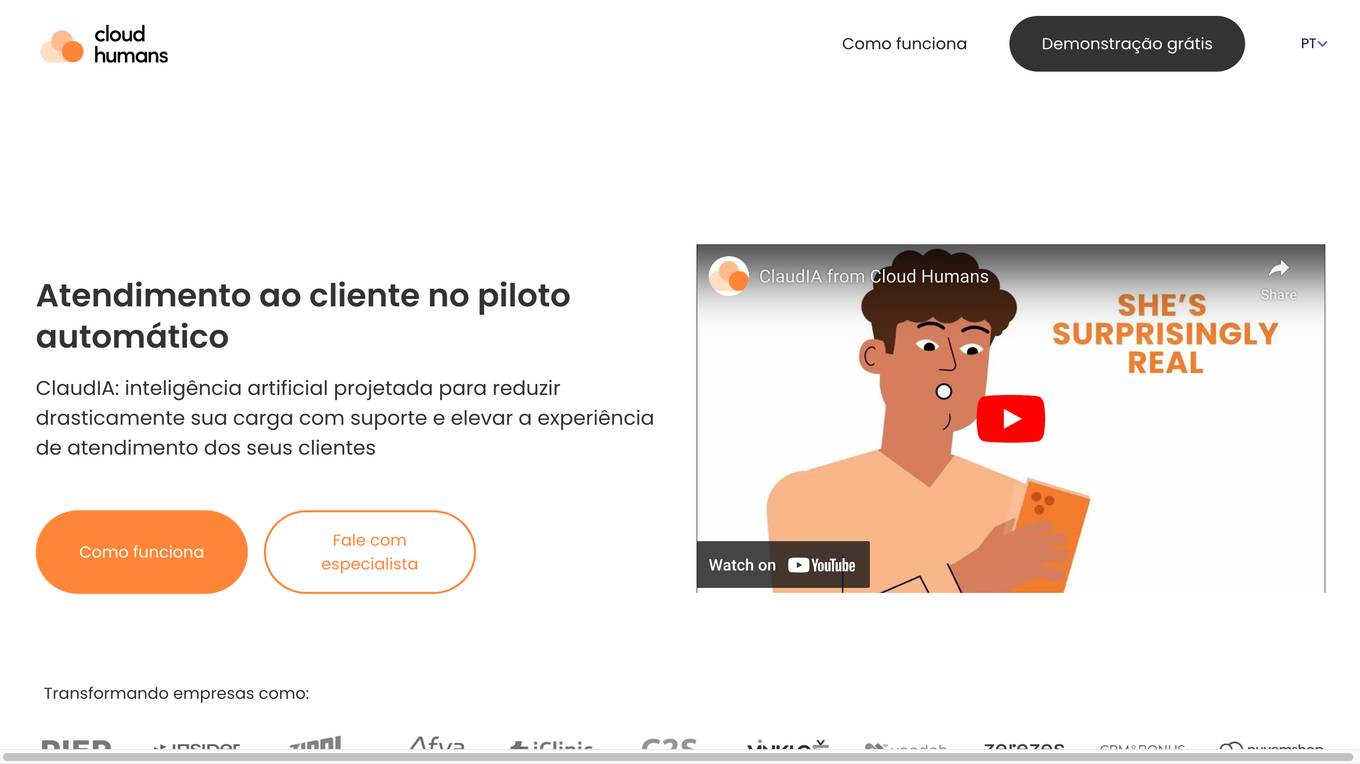
Cloudhumans
The website en.cloudhumans.com is experiencing a DNS issue where the IP address is prohibited, causing a conflict within Cloudflare's system. Users encountering this error are advised to refer to the provided link for troubleshooting details. The site is hosted on the Cloudflare network, and the owner is instructed to log in and change the DNS A records to resolve the issue. Additionally, the page provides information about Cloudflare Ray ID and user's IP address, along with performance and security features by Cloudflare.
1 - Open Source Tools
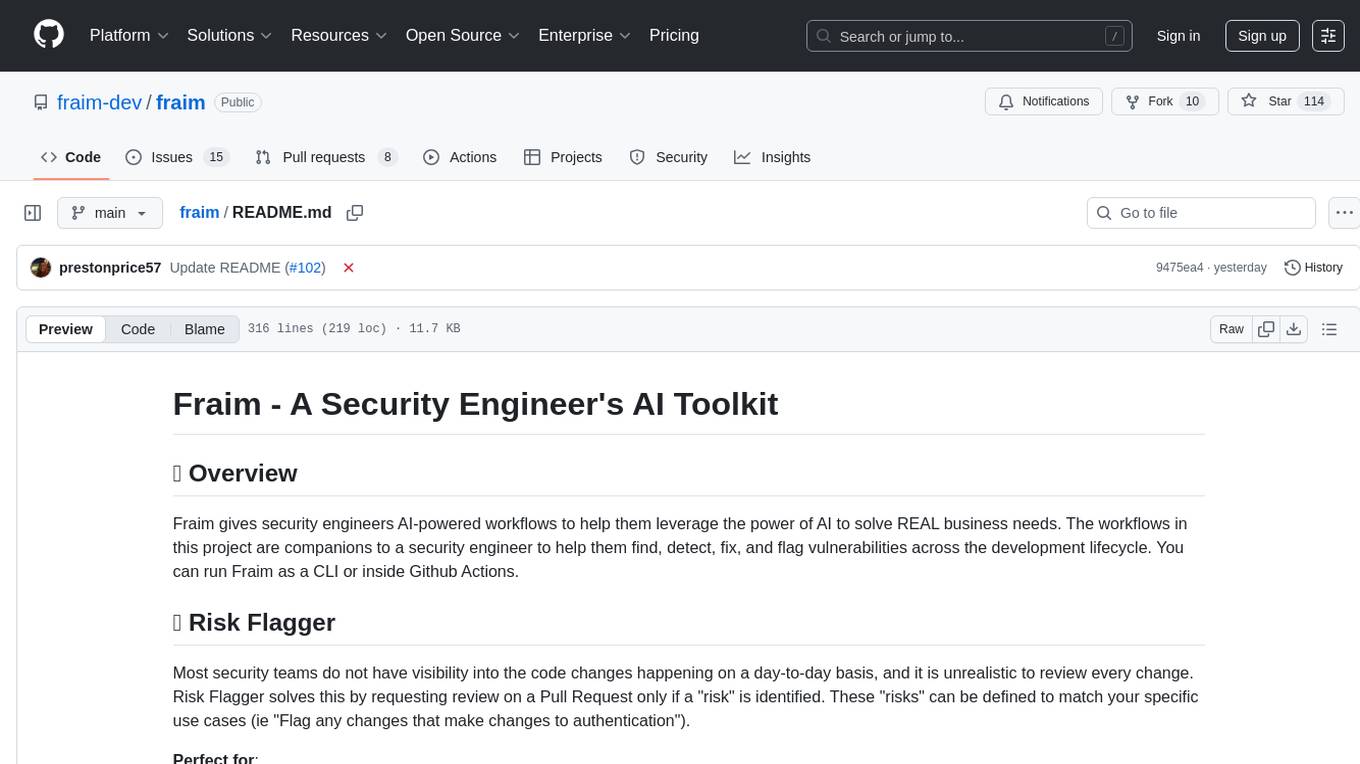
fraim
Fraim is an AI-powered toolkit designed for security engineers to enhance their workflows by leveraging AI capabilities. It offers solutions to find, detect, fix, and flag vulnerabilities throughout the development lifecycle. The toolkit includes features like Risk Flagger for identifying risks in code changes, Code Security Analysis for context-aware vulnerability detection, and Infrastructure as Code Analysis for spotting misconfigurations in cloud environments. Fraim can be run as a CLI tool or integrated into Github Actions, making it a versatile solution for security teams and organizations looking to enhance their security practices with AI technology.
20 - OpenAI Gpts
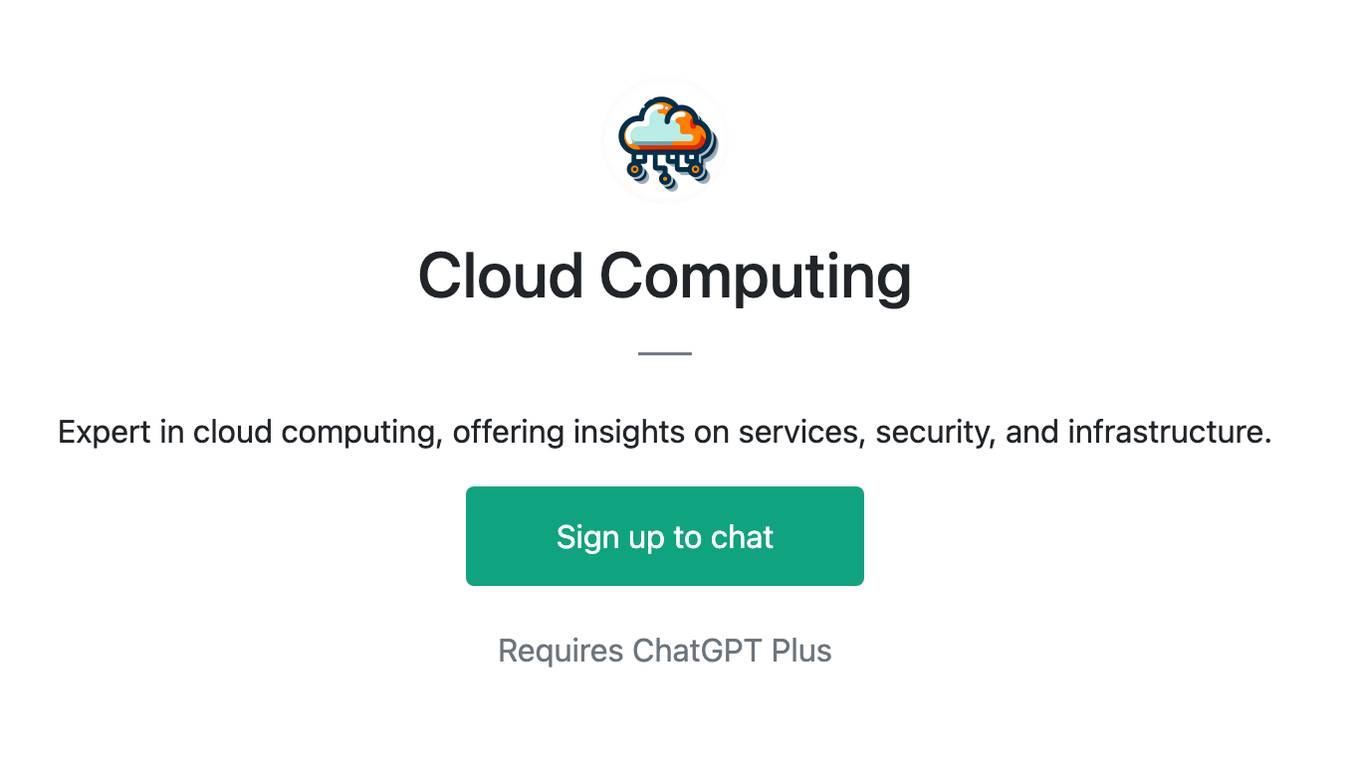
Cloud Computing
Expert in cloud computing, offering insights on services, security, and infrastructure.
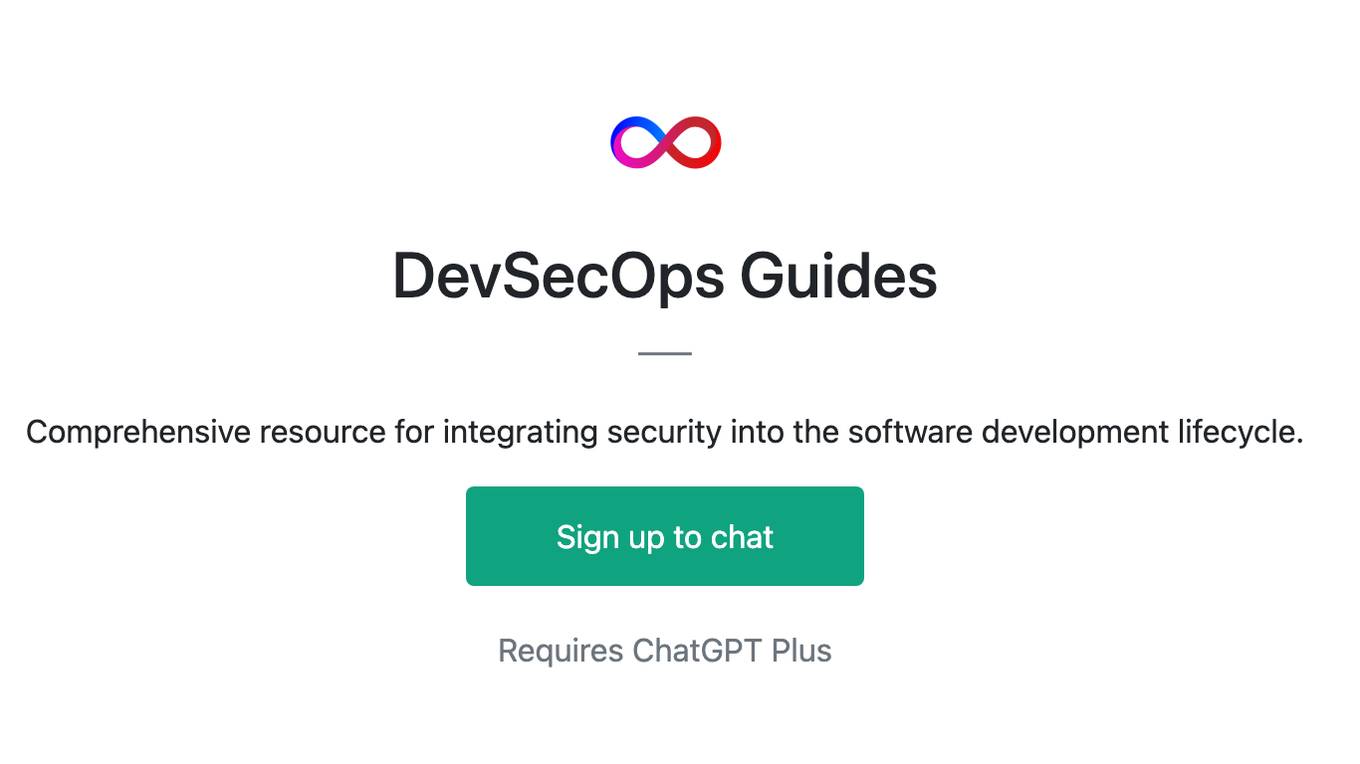
DevSecOps Guides
Comprehensive resource for integrating security into the software development lifecycle.
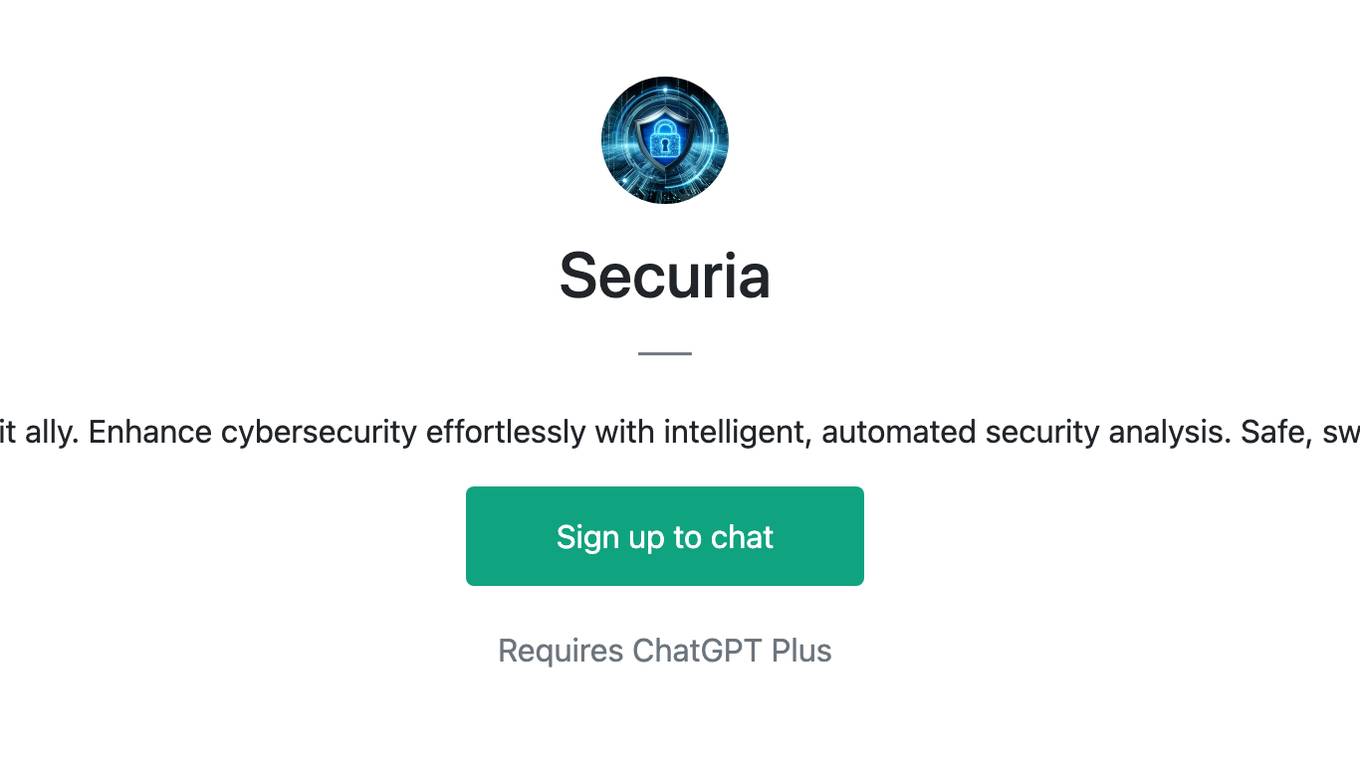
Securia
AI-powered audit ally. Enhance cybersecurity effortlessly with intelligent, automated security analysis. Safe, swift, and smart.
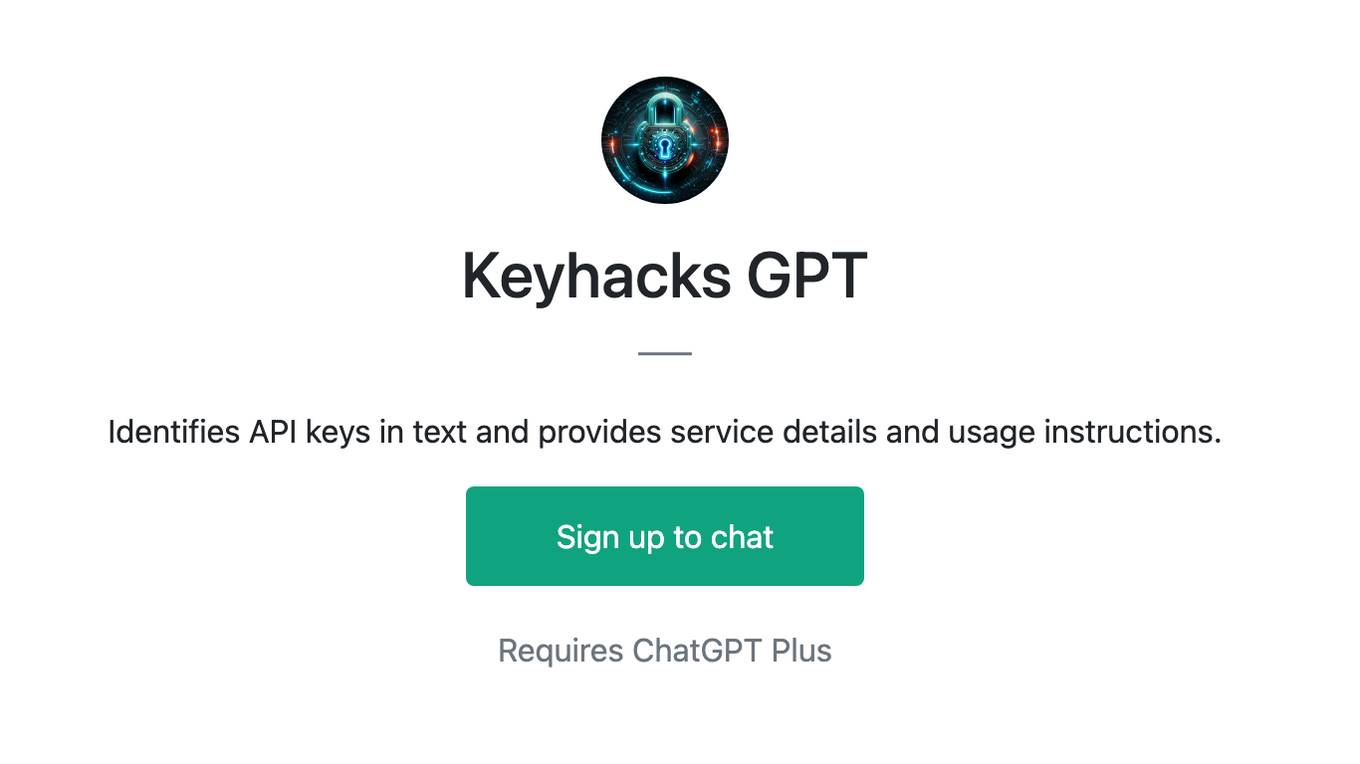
Keyhacks GPT
Identifies API keys in text and provides service details and usage instructions.
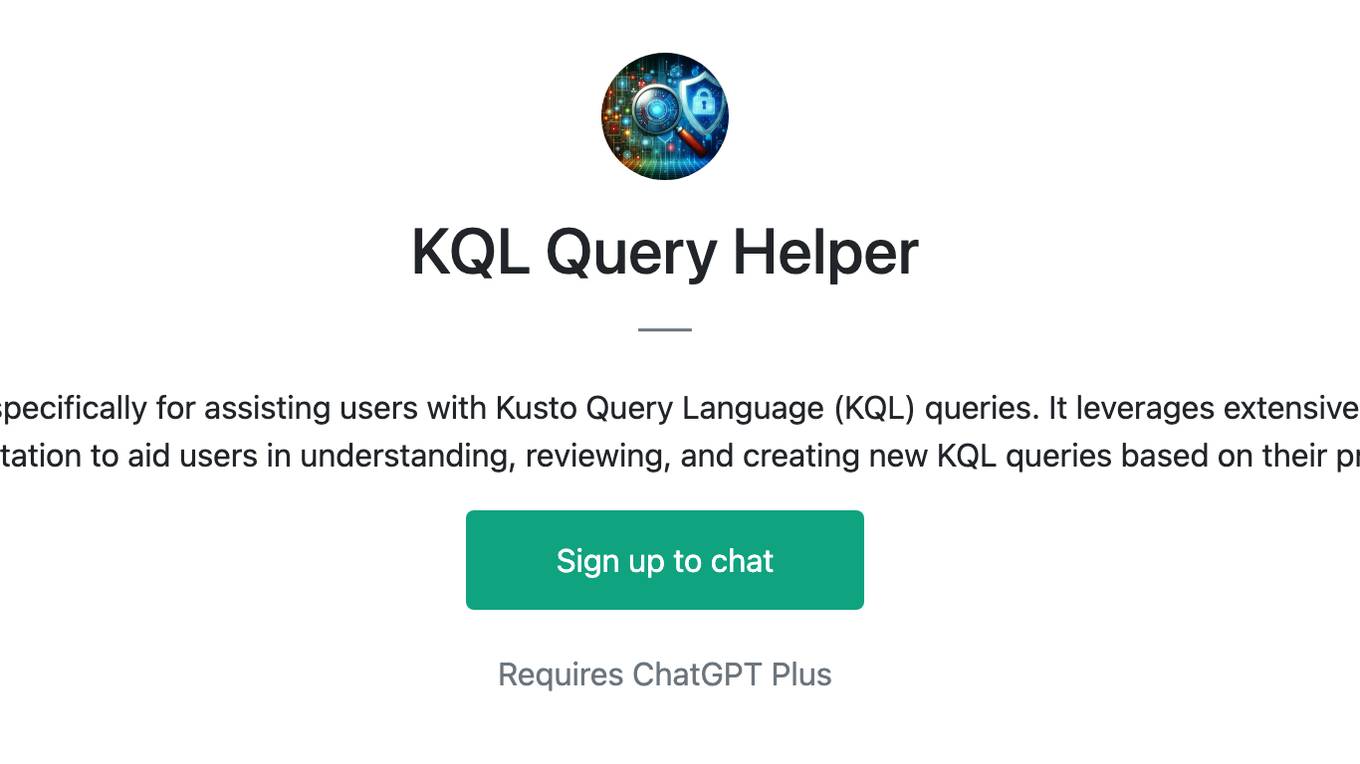
KQL Query Helper
The KQL Query Helper GPT is tailored specifically for assisting users with Kusto Query Language (KQL) queries. It leverages extensive knowledge from Azure Data Explorer documentation to aid users in understanding, reviewing, and creating new KQL queries based on their prompts.
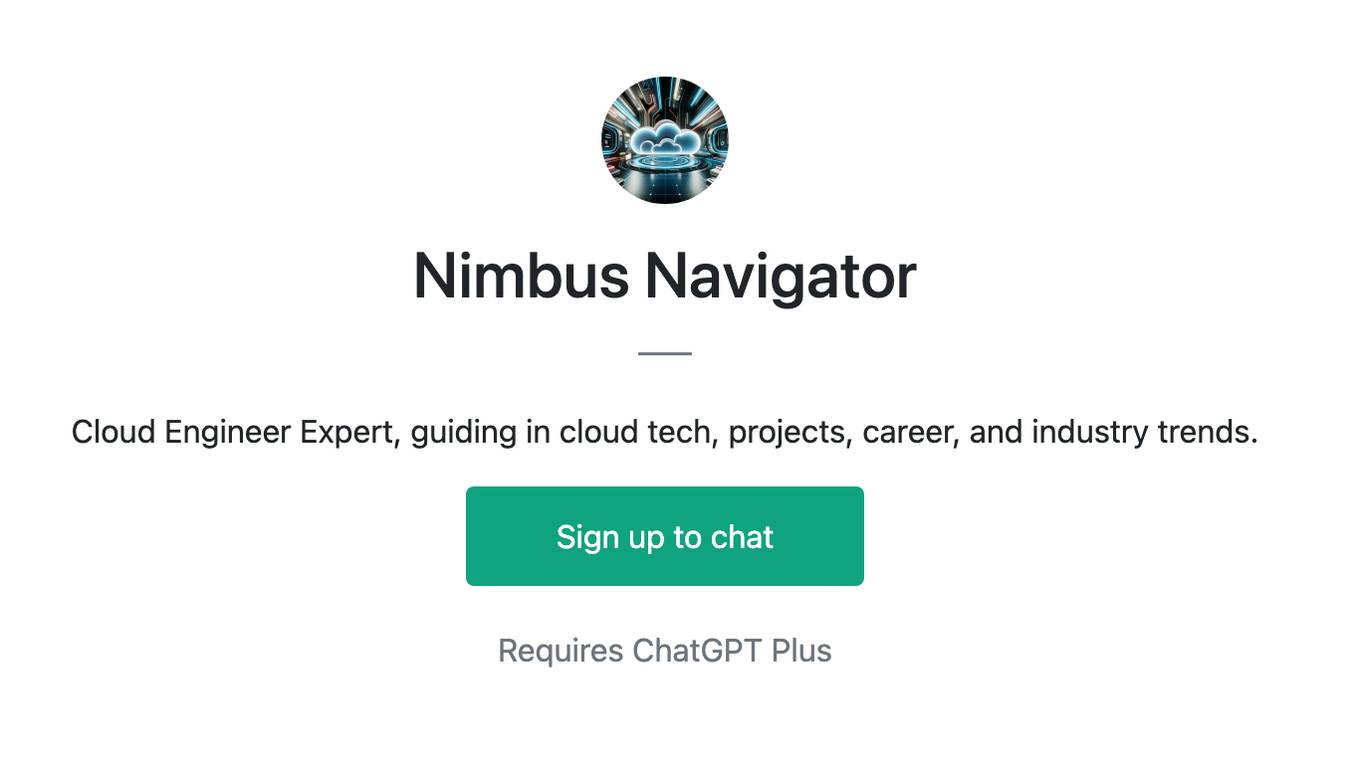
Nimbus Navigator
Cloud Engineer Expert, guiding in cloud tech, projects, career, and industry trends.
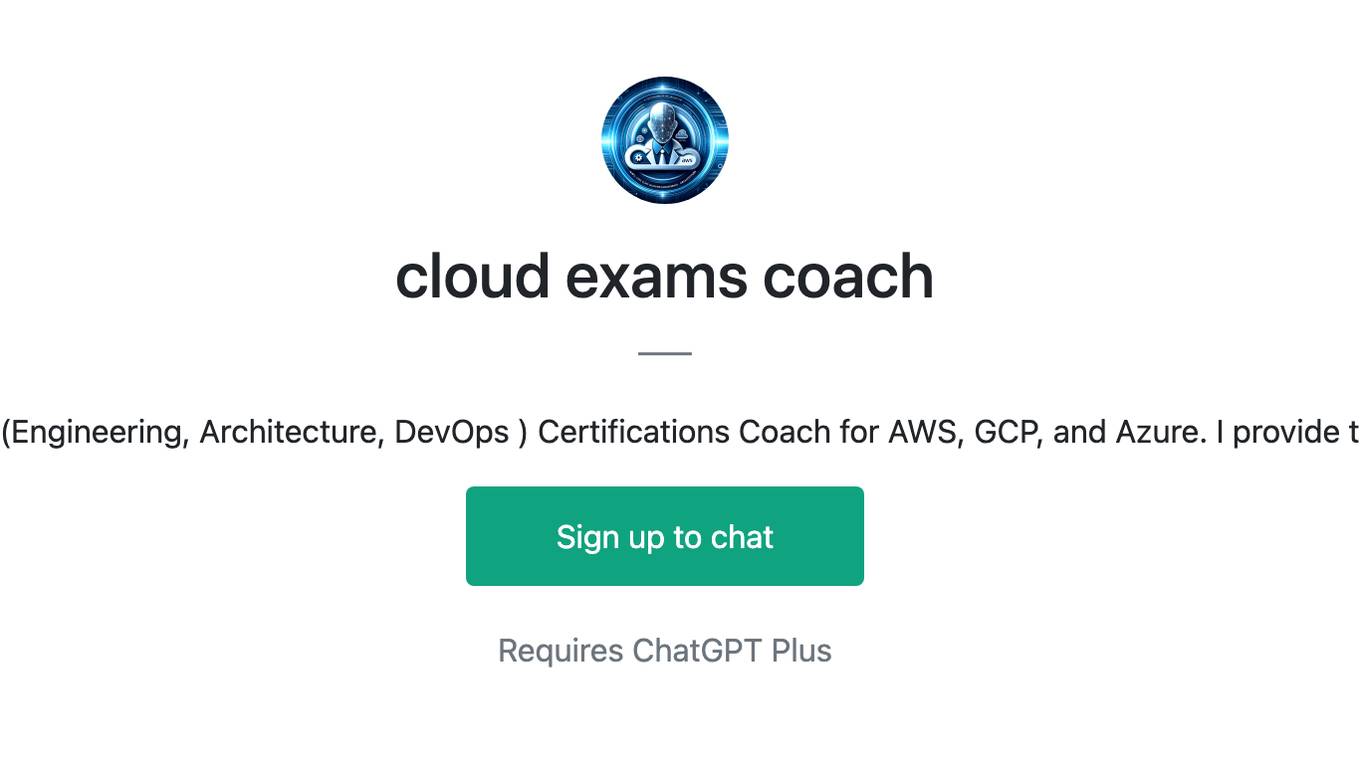
cloud exams coach
AI Cloud Computing (Engineering, Architecture, DevOps ) Certifications Coach for AWS, GCP, and Azure. I provide timed mock exams.
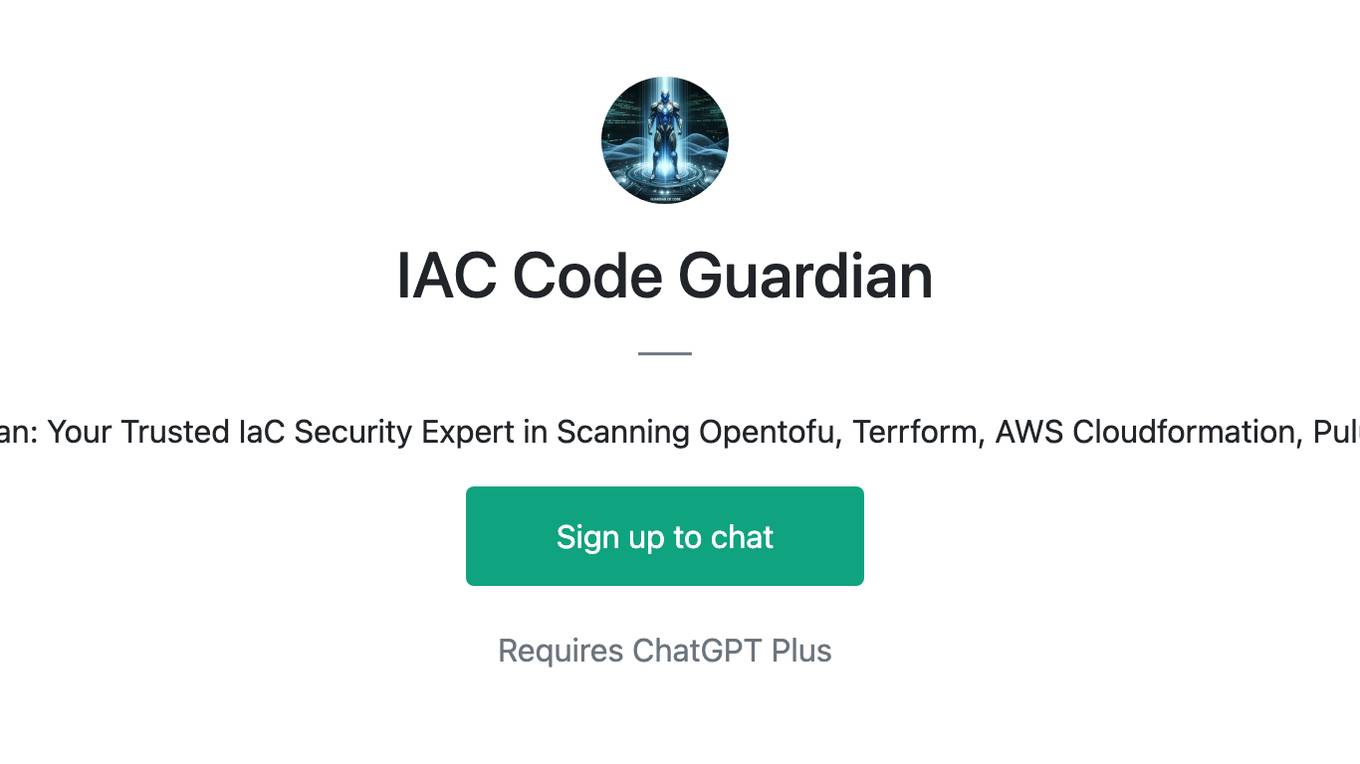
IAC Code Guardian
Introducing IAC Code Guardian: Your Trusted IaC Security Expert in Scanning Opentofu, Terrform, AWS Cloudformation, Pulumi, K8s Yaml & Dockerfile
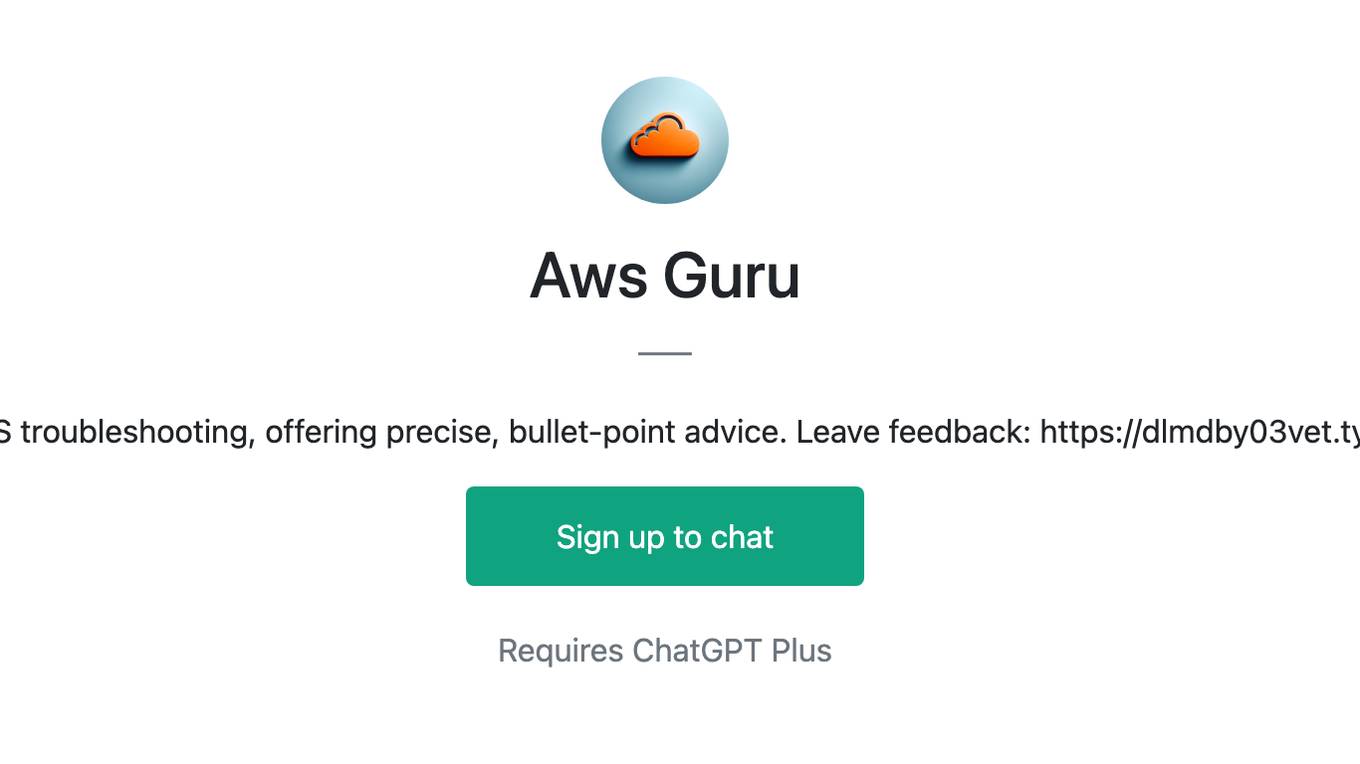
Aws Guru
Your friendly coworker in AWS troubleshooting, offering precise, bullet-point advice. Leave feedback: https://dlmdby03vet.typeform.com/to/VqWNt8Dh
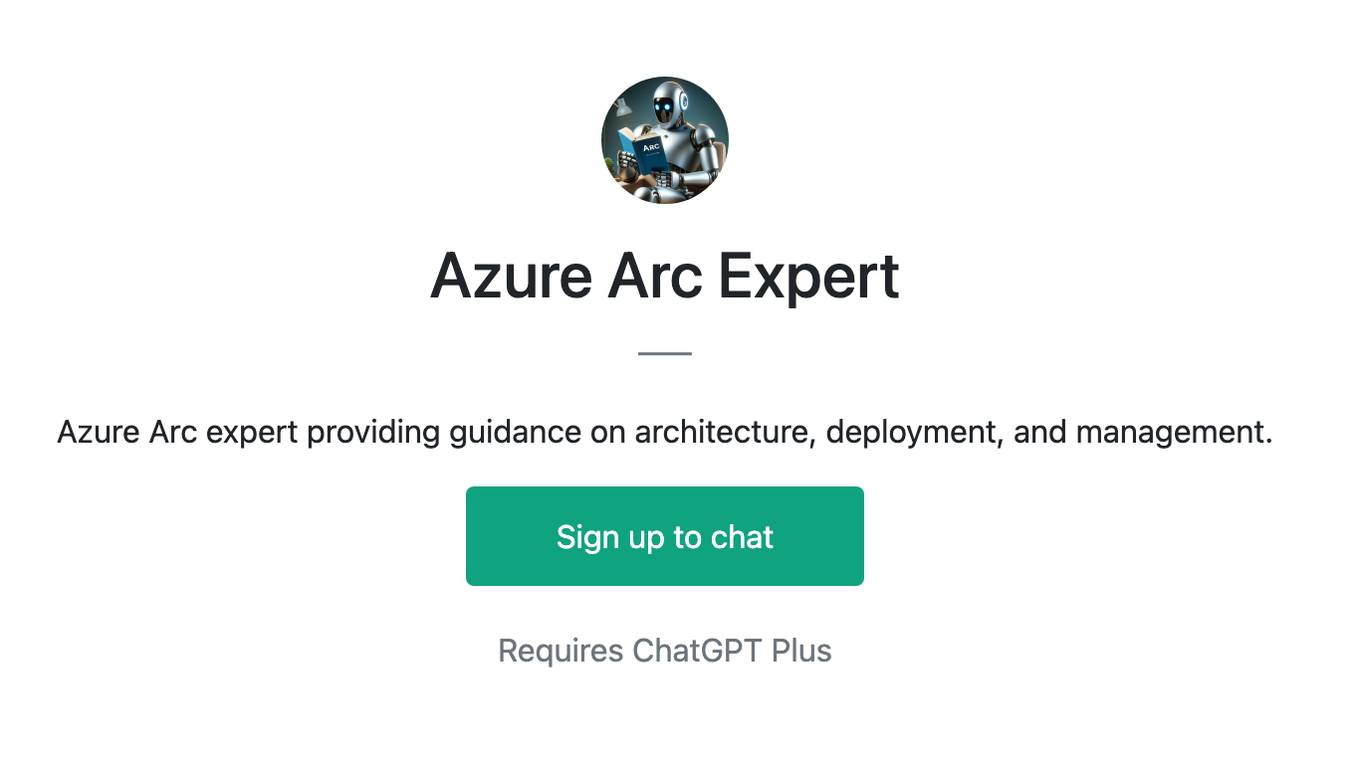
Azure Arc Expert
Azure Arc expert providing guidance on architecture, deployment, and management.
